Photo: Daniel Prakopcyk
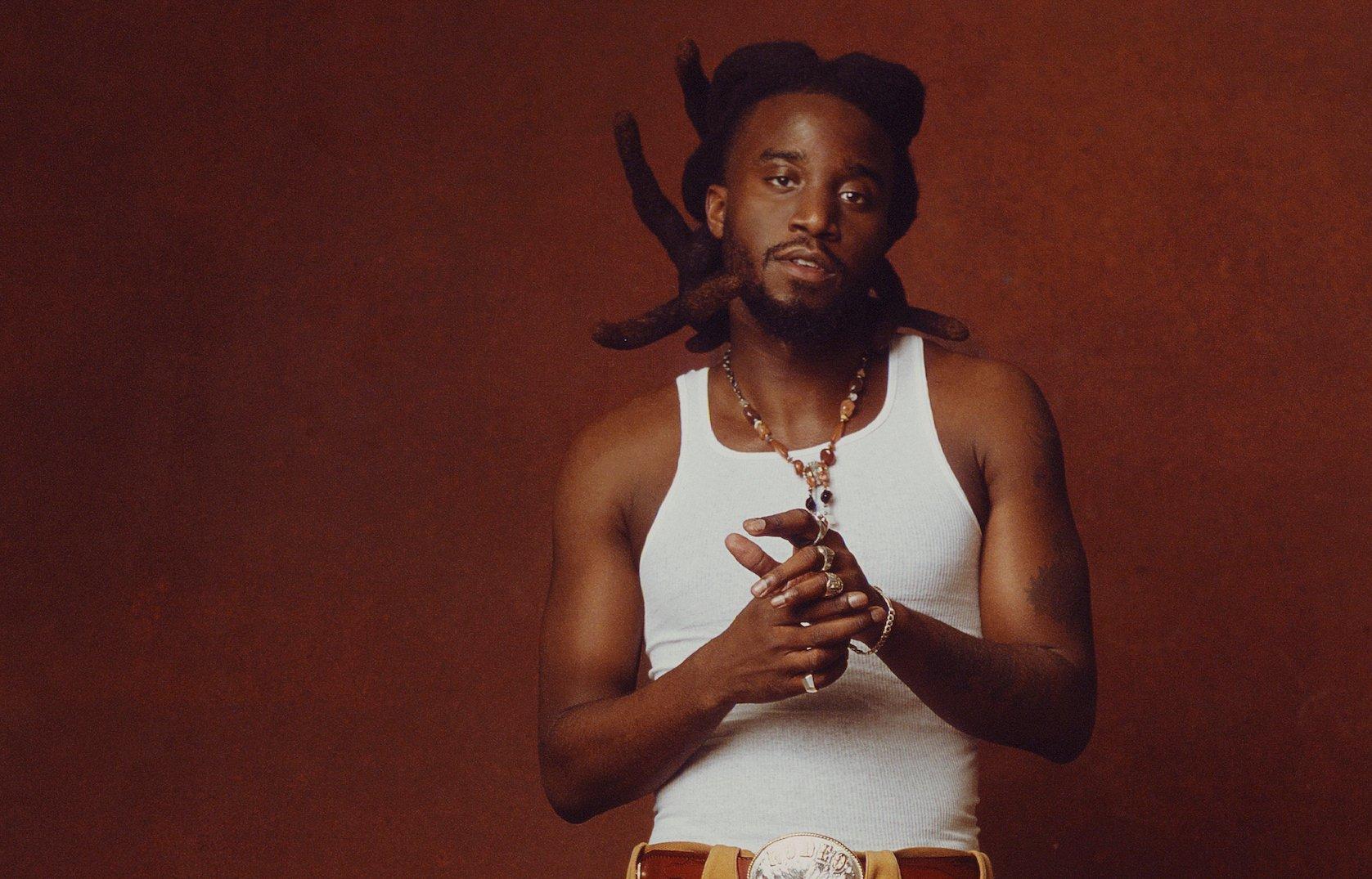
interview
Shaboozey On His New Album, Beyoncé & Why He'll Never Be A "Stereotypical" Artist
After Beyoncé introduced Shaboozey to a global audience via 'COWBOY CARTER,' his genre-shattering third album arrives on the wings of his own international smash, "A Bar Song (Tipsy)" and makes a declaration: 'Where I've Been, Isn't Where I'm Going.'
The last two months have been monumental for Shaboozey. On March 29, Beyoncé fans around the world embraced his two guest collaborations on her COWBOY CARTER album, "SPAGHETTII" and "SWEET HONEY BUCKIIN'" — and they were instantly interested in what else the Nigerian-American singer had to offer. According to his label, EMPIRE, Spotify listens of Shaboozey's music (including his first two albums, 2018's Lady Wrangler and 2022's Cowboys Live Forever, Outlaws Never Die) rose by 1000 percent after COWBOY CARTER dropped.
Six weeks later, his growing fandom sent his breakthrough single, "A Bar Song (Tipsy)," to No. 1 on Billboard's Hot Country chart — ironically, dethroning Queen Bey's "Texas Hold 'Em" in the process. The song instantly proved to have crossover appeal, also peaking at No. 3 on the all-genre Billboard Hot 100 chart, along with reaching the top spot on pop charts in Australia, Canada, Norway, and Sweden.
With his third album, Where I've Been, Isn't Where I'm Going, the man born Collins Chibueze is eager for audiences new and old to get a deeper look into his ever-evolving artistry, which he's been honing for more than a decade. He leans into country and the soundtrack of the open road on "Highway" and "Vegas," while also tapping into his talent as an MC on "Drink Don't Need No Mix" with Texas rapper BigXthaPlug. He displays a softer side, too, with tracks like "My Fault," an apologetic and pleading country ballad performed with Noah Cyrus, and "Steal Her From Me," which finds Shaboozey smoldering with his own Southern slow jam.
Shaboozey's massive global recognition may be fresh, but he's here to remind listeners that he's not a new artist. In a candid interview with GRAMMY.com, the singer discusses how he's put in a decade of hard work in order to appear to be an overnight success.
You've topped the country charts as well as pop charts around the world. Do you think we are witnessing a more welcoming era in country music right now?
I think it's definitely a lot more welcoming. All these genres of music now, just because of the internet age and the access to information — like, now I can go watch Tubi, which has thousands of Western movies, and then Spotify, I can jump from listening to a Townes Van Zandt album or a Leonard Cohen album, and then I can go play Future, you know what I mean?
And then I can jump from them, and go listen to The Marías, who are friends of mine. I can listen to some indie rock music, and then I can listen to some Fred again.. or something like that. So having all that at your fingertips, I think, it's allowed for some interesting combinations in all genres of music.
I think we're the generation of paint splatter! I do think it is very welcoming. As artists we are able to connect. We can have our own micro communities. There's not just one way to connect with people now, there are so many other ways. It's different out there now, it's really different.
You're releasing your second album with EMPIRE — how has the company helped you to develop?
EMPIRE has been super awesome. I was signed to Republic for a while, for a year or two, and I saw some article where it talked about Universal partnering with EMPIRE to handle some distribution stuff. I remember talking to my manager at the time, and being like, "We should go there!"
Major labels can get pretty cluttered. Sometimes they just don't have the bandwidth to develop acts that aren't going to take off in a couple weeks or a month or a quarter. They have these quarterlies they have to meet.
So for an artist like me, who is — a lot of people like to describe me as disruptive. It's weird to describe yourself as that. I'm just being me, and people are like, "That's disruptive." But for someone like me, who's like that, it's very important for me to be innovative and push things, and change the way people consume.
I never came in the game wanting to be stereotypical, or just your usual artist. I came in just trying to be like, Man, I love art. I love being creative and that's what I am. Sometimes that's hard to package to everyone. It's like, what is it? For major labels, sometimes, they love to be like, this is pop, this is country, this is just that.
And so for EMPIRE to bring me into what they had going on, and to stick with me within these three or four years I've been with them, knowing that there has been a lot of ups and downs. There've been a lot of [times] that we thought were going to do something that [we] didn't. Because it's a process with artistry, it doesn't happen overnight. They say it takes 10 years to have an overnight success, and it's true.
Your new album flows so well. Was it written to be taken in as one complete piece?
I'm a lover of a concept album. I love film, I love stories, I love payoffs. I love the hero's journey, they call it.
There is a way to tell a story in a three-act structure. And within those structures you have your rising action, you have your hero's call to action. They lead the world, you have your climax, and then you have, was the hero changed? Did they get the thing they were looking for at the end of it?
I'm a huge fan of film, huge on concepts, world building. I want something to feel immersive, so arrangement is big to me.
But before, I used to be super picky about [ensuring that] everything needs to connect, and I had to learn to let that go and just know that that's a part of me as an artist. As I create, I'm telling these stories naturally, so I stopped being too hard on myself about things needing to connect because that would cripple me at certain points. But now, again, I'm just learning how to let it go, and let it come naturally. It's cool to see that people are still saying with this project that there's still a concept there. And I'm like, oh, there is still a concept there. There is still a story.
My last project [Cowboys Live Forever, Outlaws Never Die] was super inspired by western films. Old western films, like, spaghetti westerns, and the whole nature of outlaw, just like period piece western culture. So I was huge on everything needing to feel like it was period. It needed to feel like this 1800s western, and this Black outlaw and his gang.
Obviously, I wanted the [visual] content to reflect that. And then you're realizing… Wait, every video shoot I'm having to rent western wardrobe and chaps? It's a lot to do all the time, you know? It was a commitment… and I don't wear that everyday, so it wasn't really 100 percent being authentically myself in that moment. It was like, I'm creating a character and this character is separate from me.
That's hard to do all the time. Especially when it's a period piece in the 1800s and you're in 2024. So at some point I was like, hey, I want this project to be more like, I can put something on in my closet and go shoot some content, versus having to find a western town, or a world or environment that fits the 1800s.
Do you think that Beyoncé was inspired by that album?
I definitely think so. I think that's what was cool about her project, and her entry into country. I saw a lot of similarities between the things that inspired us.
What I love about country is, I really love the old stuff that really does play into the old West, the Wild West — and I saw that Beyoncé, she would talk about little things like that, too. Like the outlaws, hangmen and six shooters, and stuff like that. So you can see that she's really inspired by that stuff as well. I was told by her team that she would definitely watch a lot of old Western films through the process of doing her project.
How has the Beyhive treated you since you appeared on COWBOY CARTER?
I love that community. Seriously, that community, they've been extremely supportive from what I've seen, because Beyoncé's message has been about shining light on people that may have been overlooked. So they definitely carry out the mission of supporting the people that Beyoncé supports. They've been amazing.
I would like to say that early on with "Bar Song," they were definitely pre-saving it, they were sharing it as much as they could on Twitter, and there were a lot of posts that I was making that were getting high viewership. You could tell that there were a lot of impressions before the "Bar Song" came out. So they're great.
Did you ever think you'd be on an album with Willie Nelson and Dolly Parton?
I hoped for those things when I was creating my album. I wanted to see more hip-hop artists collaborating with people like that. I was always like, man, if I was given a $10 million budget to make a project, I'd get Willie Nelson or Hank Williams Jr. or someone like that to jump on it. I want to see something like that.
As someone whose parents grew up in Nigeria, what do you think of the global breakthrough of Nigerian artists like Burna Boy and Wizkid?
It's amazing to see. Afrobeat is definitely universal now, global like that. I think Wizkid was one of the pioneers of getting that music across the water in such a way. Burna Boy, too — if you check out his aesthetic, it's influenced by a lot of different things. He's not just wearing traditional Nigerian garments, he's wearing designer stuff, and he's got the jewelry pieces and Cartier. It's presented in a way that that style of music wasn't really represented [before] in that sense.
I lived in Nigeria for a year or two, and when I was there, there was no wifi or the internet. Now I go back and my cousins are on Netflix and on Instagram and all these places. So yeah, everything is spreading out. But as far as Afrobeat, I mean, that music is incredible, the production. It's so infectious when you hear it, but it's cool to see people of Nigerian descent, me as well, having our reach everywhere.
Davido, he reached out to me a couple days ago, he's like, "I need you to get on this record." There's a lot of Nigerian artists now that are hitting me up, and are like, "Hey, will you jump on this, will you jump on that?" I'm hearing some of those guys are trying to get into country music. It's cool to kind of have my own Burna Boy moment right now!
The new album sounds like you really worked on developing your voice as an instrument, with more singing than rapping. Is that a fair assumption?
Yeah. Being from Virginia, we didn't have those outlets to kind of hone in on. I didn't have a vocal coach, or a songwriting program, or anything like that. We kind of had to figure it out on our own.
I think that's why you have so many artists that come from Virginia where they're all very eclectic, they all have this kind of rawness to them. Missy Elliott, Timbaland, Pharrell, even Tommy Richman. He's got that song going crazy viral too. You know the song, the "Million Dollar Baby" song. It's a guy singing falsetto [like] Bee Gees over a hip-hop beat. I'm like, where did you learn to structure a song like this?
This album was that project for me. My manager here [told me] it's working, because I'm learning how to arrange music and write songs that have a broader appeal, but I didn't know that at the time. We were just having fun, just learning how to do it with whatever resources we had. It can get kind of funky.
I think my first project was very funky, and then this one was [made after] 10 years of being in it. You start to figure it out a little bit more.
Beyond Country: All The Genres Beyoncé Explores On 'Cowboy Carter'
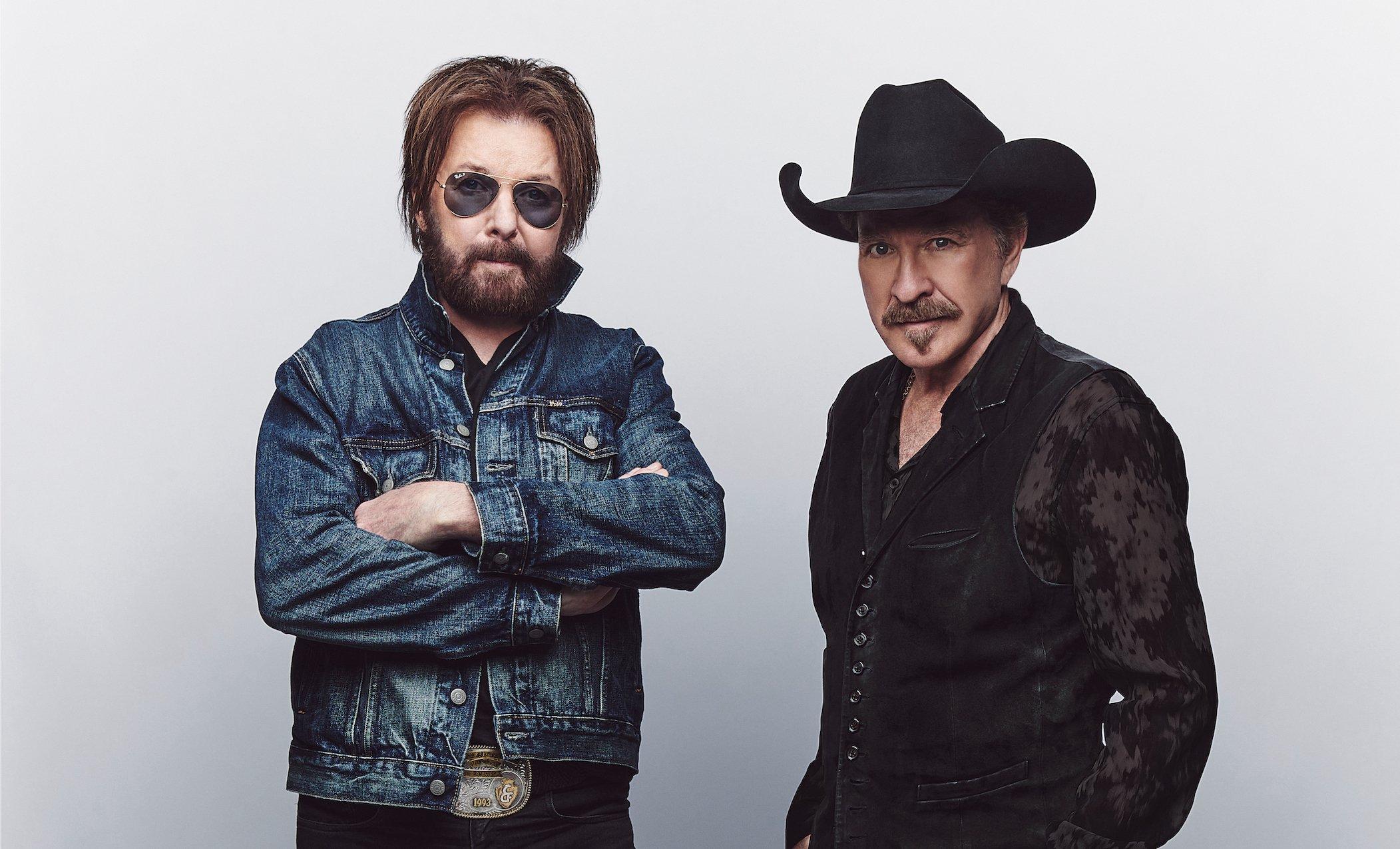
Photo: Matthew Berinato
interview
Living Legends: Brooks & Dunn On How 'Reboot II' Is A Continuation Of "Winging It From Day One"
The iconic country duo detail how their latest collaboration project — which includes covers by the likes of Jelly Roll, Lainey Wilson, Riley Green and more — came to be, and how it may have inspired them to continue the legacy they've built.
Since bursting onto the scene in 1991 with their debut single and No. 1 hit "Brand New Man," Brooks & Dunn have gone on to not only become country music icons, but an inspiration to countless artists that have followed them. That influence has led to not one, but two albums dedicated to their legacy: 2019's Reboot and Reboot II, which just dropped on Nov. 15.
While the first Reboot is filled with features from fellow country power players such as Luke Combs, Kacey Musgraves, and Thomas Rhett, Reboot II sees the duo dabbling with rock (Halestorm), bluegrass (The Earls of Leicester), and blues (Christone "Kingfish" Ingram). Of course, the 18-track Reboot II has plenty of country to it, too, with the likes of Lainey Wilson, Riley Green and other torchbearers of the modern country movement offering their takes on classics like "Play Something Country" and "She Used to Be Mine."
Between the two Reboot albums, 15 of Brooks & Dunn's 20 No. 1 hits are reimagined. Six songs appear on both, but certainly don't sound like reiterations; for one, "Boot Scootin' Boogie" went from a true-to-form collaboration with Midland on Reboot to a hard-rock thrasher by Halestorm on Reboot II. Whether the songs stick to the original blueprint or take on entirely different forms, the Reboot albums celebrate the timelessness and versatility of Brooks & Dunn's music — and as Kix Brooks insists, it gives the duo a hint of excitement more than three decades into their career.
"At least with this Reboot series people will be going, 'Holy crap, I can't believe they freaking did that!,'" Brooks tells GRAMMY.com. "At this point in our careers we want some kind of reaction, good or bad, so let's stir it up."
The two-time GRAMMY-winning duo caught up with GRAMMY.com to talk about their favorite moments from recording Reboot II, how the genre has changed since their breakthrough, and why there's a "good chance" new music may be on the way.
How'd the idea for this Reboot series start?
Ronnie Dunn: It was completely not our idea, but rather our manager's, Clarence, who never has a good idea [Laughs]. He did all the legwork, calling only once so to not pester people. If we didn't get a call back, that was fine, we'd just move onto the next one. But everyone he called got back to him and said they wanted in.
**There's a handful of songs — like "Neon Moon," "Indian Summer" and "Brand New Man" — that are on both Reboot I and II. What was the intention behind that?**
Dunn: It was more about the freedom of the other artists to choose whatever songs they wanted. We didn't dictate anything.
**On Reboot II, you went beyond the country realm. What was it like learning to navigate the songs in an entirely new way?**
Dunn: There's an adage that country music fans don't really embrace change that fast, and because of that, there's some stuff on this record that scared me at first.
At the same time, it's fun to go online on occasion to see the comments about the songs that have some saying, "That's wrong, it shouldn't be done that way," and others saying, "This is great stuff." There's a little danger element for us as a result, like, we could get kicked out of country music for two or three songs here [Laughs]. But it could also be the best way to earn a GRAMMY.
I think it's also evidence of how much your music and legacy is appreciated even outside of country music, when you have all these folks from other music circles involved and resonating with your songs.
Dunn: That's been a key for us, being able to go out and bring in new fans without alienating the steadfast group we have chasing us around now.
Kix Brooks: There's certainly two approaches to making a record like this. The first one is re-cutting the songs the way we always have, but there's already been so many tribute records like that where I've dropped a needle on two or three songs and went, "Okay, now I don't really care anymore." At least with this Reboot series people will be going, "Holy crap, I can't believe they freaking did that!" At this point in our careers we want some kind of reaction, good or bad, so let's stir it up.
The first [Reboot in 2019] was a bit more organized, but with this one we encouraged everyone to run with their wild ideas. Several of them even brought in their own bands this time, which only Kacey Musgraves did the first time around.
Dunn: She was the only one that deviated from the norm, but this time it's nothing but that in spirit. That's what made it fun — because deep down, Kix and I are just songwriters, so to hear a fresh twist put to this stuff is legitimately really fun.
Speaking of fresh twists, tell me about bringing Halestorm in to record "Boot Scootin' Boogie."
Dunn: That's the song I'm most afraid of, even though I love what they do and what they did to the song. It was my crazy idea making the call to our manager to see if we could get someone like Metallica to cover the song, and they did everything we asked them to do. This is music, not life and death. We're out here just having fun and seeing what we can do.
Brooks: There were a couple cool moments with [producer] Dann Huff. Halestorm had just come into the studio from having just sold out [OVO Arena Wembley in London] two days prior to making it back to Nashville to cut this thing. Despite this, when they came in, they were prepared. They had rehearsed and learned the song and the way they wanted to do it, then they hit it.
I remember Dann getting the biggest grin on his face as he looked over to the console and said, "This band is so freaking good!" They were really tight and brought it every time. And the way [Lzzy Hale] can sing is mind-boggling.
Dunn: She can sing like she's gargling a chainsaw, and the next day still go do a show. If I did that I'd be down for a week!
That song, along with others like the Earls of Leceister's "How Long Gone," A Thousand Horses' "Drop In The Bucket," and Marcus King's "Rock My World (Little Country Girl)" that deviate from the norm are my favorites on this project. I love how y'all really let each guest artist make the tunes their own.
Brooks: Marcus King was one that really blew me away. That guy sings so high! There was a point in the song where I asked Dann if I could have a moment with Marcus. [I] proceeded to tell him, "[Your] guitar solo is 16 bars, but do you have a problem with going ahead and throwing down 32 instead?" He lit up and yelled to his band, "Alright, enough of this Nashville bulls—. We're freaking South Carolina sons of b—es, now lets play!" Almost like a football cheerleader. It was awesome.
Dunn: Back in the day when we were in college, I lived for guitar solos that go on forever. So it was so refreshing to hear that, especially in Nashville. We've come from a commercial slant of things for so long that it was like freedom breaking away from that formula.
Do y'all have any plans to continue this Reboot series and possibly break into even more genres, like Latin music or hip-hop?
Dunn: We've been winging it from day one, man. We never plan anything. Never have, never will.
Brooks: When we were making Reboot I, [if] you asked if we'd make another, I would've said that I don't think there's any room for that. We just did it, and I'm glad as hell we did because it's a totally different experience where you never know what's coming next.
If you could choose any musician(s) to do a Reboot collab with dead or alive, who would they be?
Dunn: That's a tough question, but let's start with the [Rolling] Stones, Eric Clapton, Paul Carrack, and Stevie Ray [Vaughan].
Brooks: I was thinking Tom Petty and Mike Campbell…
I guess any collaboration is possible nowadays with AI.
Dunn: Talk about frightening.
What's the most important lesson y'all have learned in the past 30+ years of Brooks & Dunn?
Dunn: How big a part of the whole success equation that luck plays. Everybody asks what is it? Is it luck? Is it persistence? Is it patience? We're just sitting around here goofing off, and things like this drop out of the sky on us, which they seem to have done for 35 years now.
Brooks: The timing was just right. The fact that we literally got put together by a record [label] guy in 1990 and had four No. 1 hits in a row is just stupid, especially to be here 34 years later still having the time of our lives and selling out shows.
Dunn: In 1988, I was playing beer joints in Oklahoma and sneaking over to Texas with a van and a horse trailer carrying our equipment, loading it up, putting it on stage, and all that. In early 1991 we had our first No. 1 hit ["Brand New Man"]. It just fell out of the sky on us.
Brooks: That's how weird it was. We didn't even have Instagram or the internet to help us out!
Since you mentioned the internet, I know a lot has changed in country music since y'all were first breaking through. What are your thoughts on that evolution and how things are, or aren't, different now?
Dunn: We've seen it go through several phases and watched many artists come and go, like with the Bro Country era.
Brooks: There's some artists like Bailey Zimmerman who got big from throwing stuff up on TikTok before getting a band together and playing in clubs, but they're really good and the songs are there nonetheless. It'll be interesting to see how all that plays out in the long term. However, there's also a bunch of artists out there still piling into vans going from gig to gig trying to figure out who's sober enough to drive tonight, which is where we came from.
I talk with a lot of young acts and all they want to talk about is their socials and how this one song blew up, but eventually at some point I can't help myself and go, "So, are you playing out? Have you got a band? How many gigs did you do last year? Are you completely obsessed with getting out and playing for people?" because that's where Ronnie and I came from.
Dunn: It's like working out in the gym. If you want to be a professional football player, you've got to go play and come up through the ranks and bang your head in the bars, that kind of stuff. Of course now you don't, which is just kind of hard to digest. But there's nothing negative about the process. It's just a sign of the times and how it's changed.
Brooks: I have seen some acts that just look real uncomfortable on stage, and I'm like, "I hope you can hang in long enough to figure this out, because you obviously haven't done this very much."
Dunn: We had immediate feedback in those clubs. All you had to do coming through the bars was play covers, you couldn't really get away with doing original songs.
I remember playing four sets a night and sneaking "Boot Scoot" in during the third one time only to have a group of girls walk over afterward asking if I'd play it again. They didn't know the name and weren't familiar with the lyrics, but it had a beat that immediately appealed to people. Sure enough, that's one of the songs that got us off the ground. I guess that's a role that social media fills now, but I'd rather be looking someone in the face when they tell me that they love my singing or a particular song.
What do you each appreciate the most about one another as bandmates and counterparts?
Dunn: I think that the biggest thing we appreciate about one another is that we were grown men when we showed up to the game. And we kind of look at the world through the same eyes. We don't always agree, but when we do have those disagreements, we've never raised our voices to one another or had a serious falling out in any way. I'm proud of the way we've kept the partnership alive over the years.
Brooks: It's hard to put a finger on the chemistry that has made us successful and kept us together. Ronnie is obviously a great singer and even though I can sing a little too along with playing guitar and harp, I think it's what we've always brought to the stage that has a lot to do with our longevity, which is what folks want to come and be a part of. We've written some good songs together and I don't think we're done yet, but putting 'em out there live and sharing that love for what we do is really what we both live for.
Has working on Reboot inspired y'all to record any new music in the future?
Brooks: This last project has been a great reminder how much we enjoy making music. There's a good chance this will motivate us further to release some of these new songs we've been working on.
Dunn: I've been working on trying to make a new record happen over the last three or four years, writing nonstop. I know Kix is working on it, too. We just have to get around to taking the time to sit in the studio after Reboot runs its course and come up with an original Brooks & Dunn record. But it has to be good, dude.
Latest News & Exclusive Videos
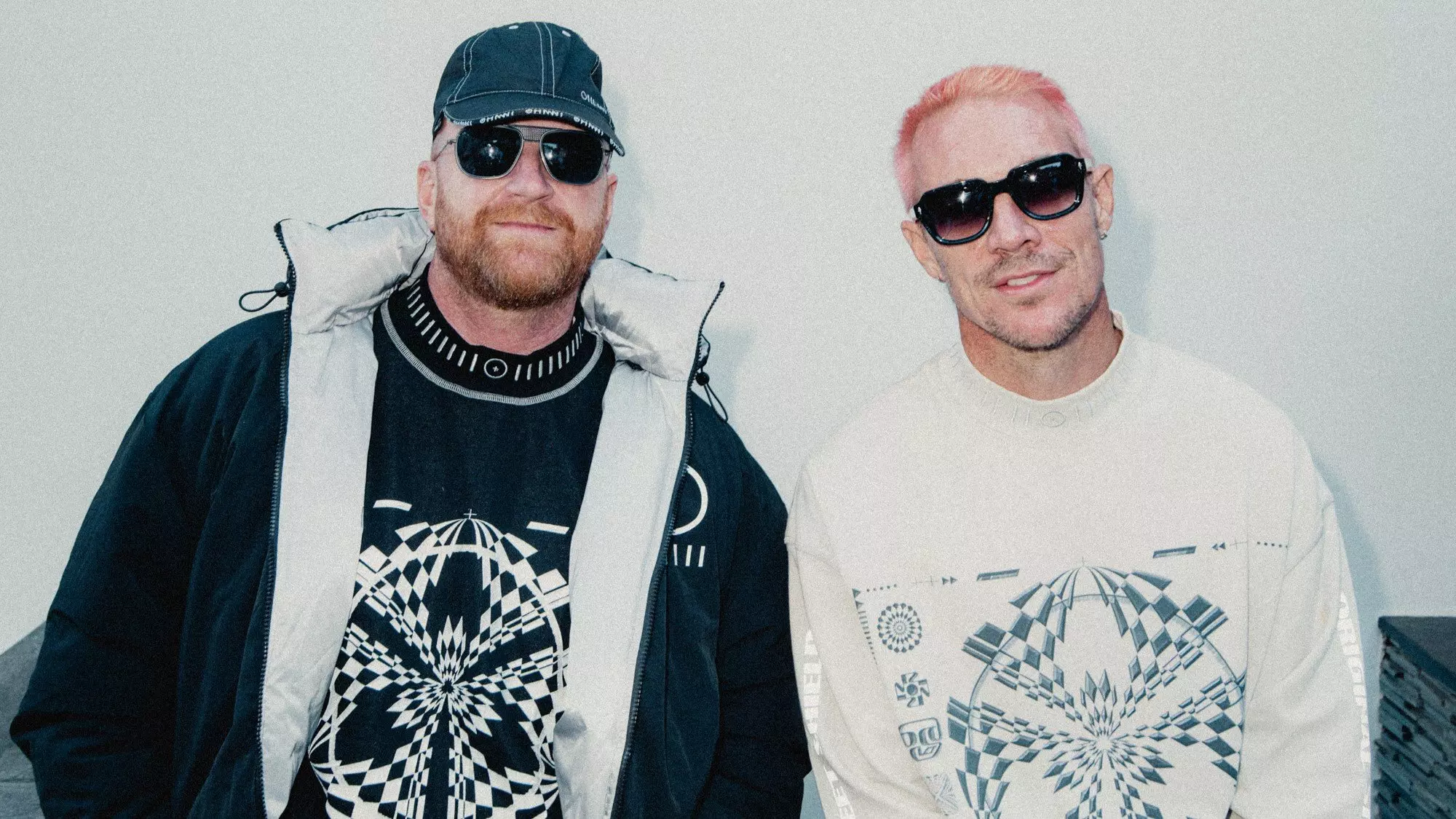
How Major Lazer's 'Guns Don't Kill People…Lazers Do' Brought Dancehall To The Global Dance Floor

YOASOBI Performs "Idol" | Global Spin
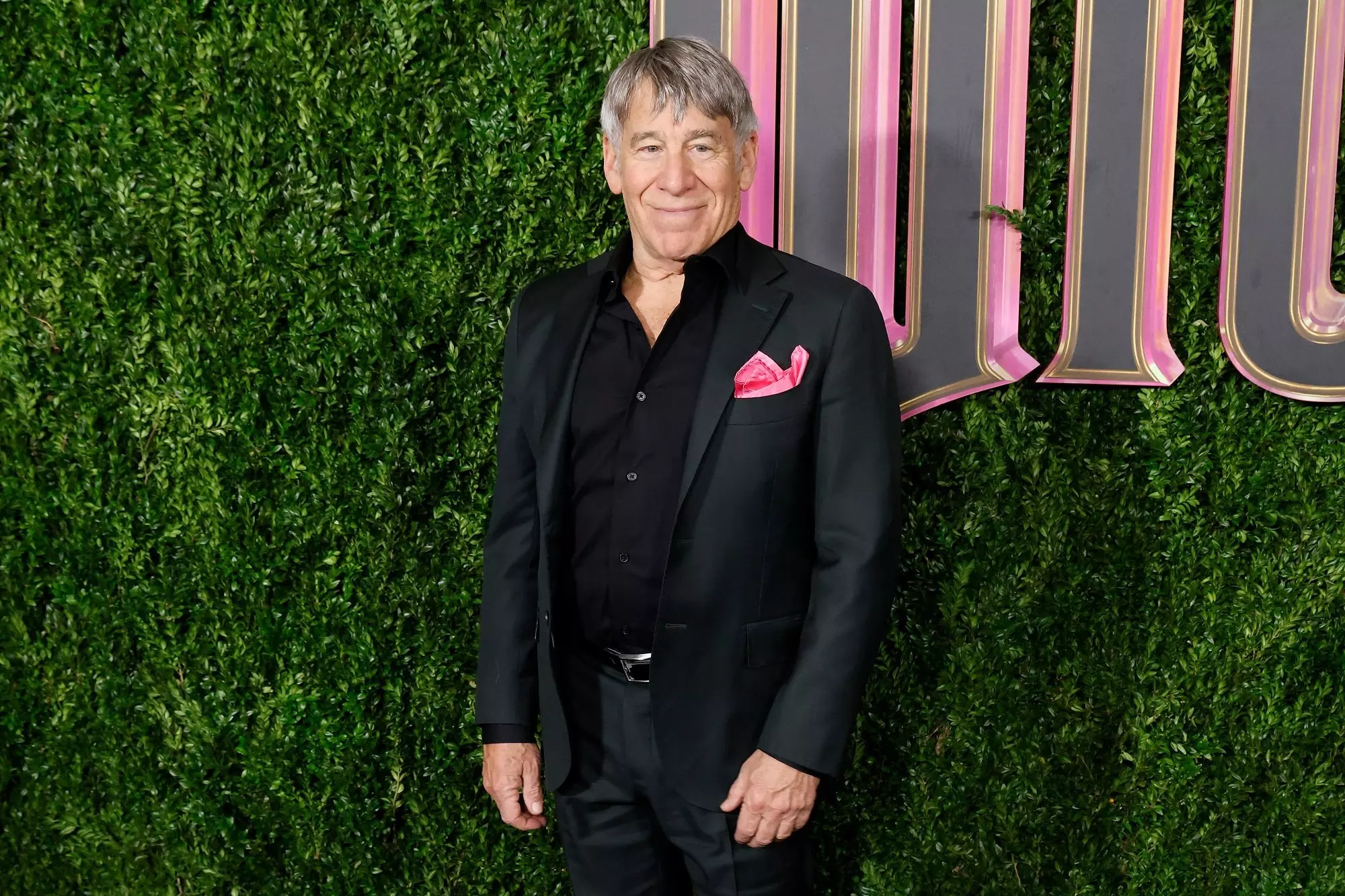
'Wicked' Composer Stephen Schwartz Details His Journey Down The Yellow Brick Road
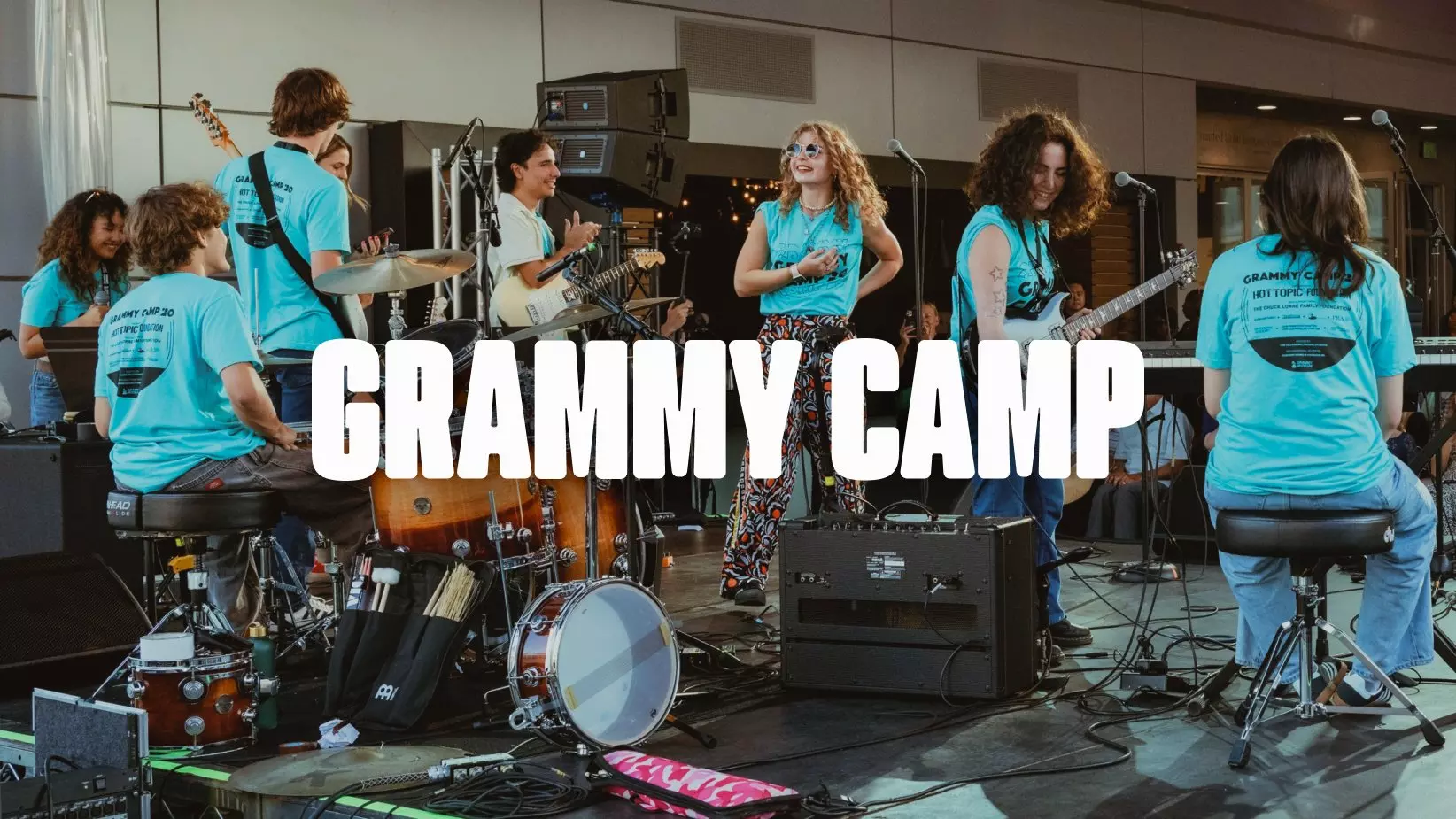
GRAMMY Museum Expands GRAMMY Camp To New York & Miami For Summer 2025
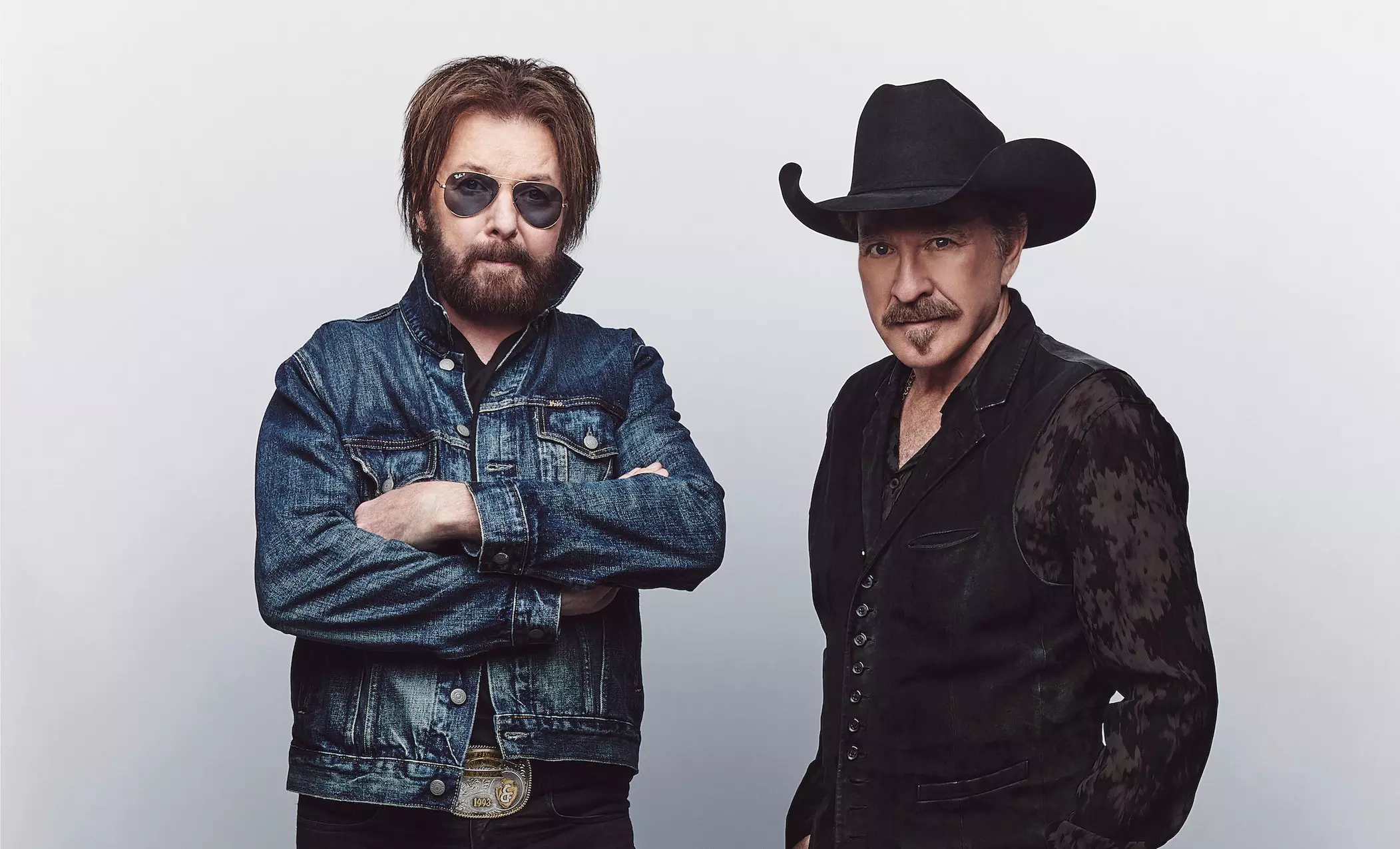
Living Legends: Brooks & Dunn On How 'Reboot II' Is A Continuation Of "Winging It From Day One"
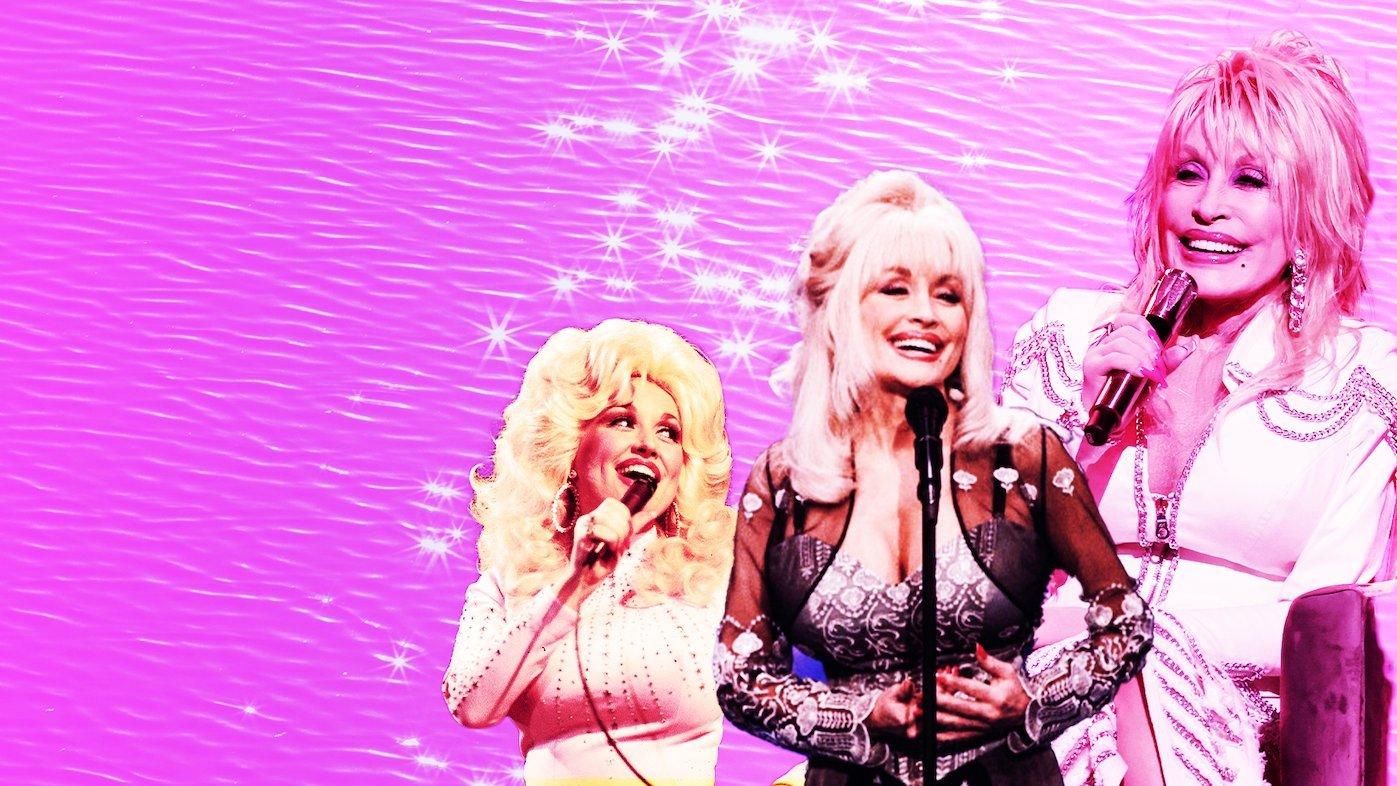
(L-R) Andrew Putler/Redferns, Margaret Norton/NBCU Photo Bank/NBCUniversal via Getty Images, Jason Kempin/Getty Images
feature
Songbook: How Dolly Parton Became The Queen of Country, From Her Songwriting Prowess To Her Effervescent Charm
In honor of the beloved icon's 50th album, 'Dolly Parton & Family: Smoky Mountain DNA,' take a deep dive into the extraordinary career that has helped her conquer the music industry, the acting scene and the world.
"After you reach a certain age, they think you're over. Well, I will never be over," Dolly Parton once declared. "I'll be making records if I have to sell them out of the trunk of my car. I've done that in my past, and I'd do it again."
Just as proficient with the razor-sharp quip as a timeless song, the inimitable country queen has thankfully never needed to rely on such primitive distribution methods. In fact, more than 60 years after Parton first entered the recording studio, the self-proclaimed Backwoods Barbie is shifting more units than ever before: 2023's Rockstar achieved both her highest first-week sales (128,000) and position on the Billboard 200 (No. 3) of her career.
That only boosted Parton's already remarkable worldwide record sales total of over 100 million, and took her tally of Top 10 country albums to 49. Throw in the record-matching 25 No. 1s on Billboards Hot Country Songs chart, three billion streams, and 11 GRAMMY Awards from 54 nominations, and it's clear why she'll forever be known as the Queen of Nashville.
Of course, Parton has had her commercial ups and downs over the years. But the quality of her music has always remained impeccably high, whether the traditional country of her late '60s beginnings, the crossover pop of her early '80s imperial phase, or the eclectic forays into bluegrass, gospel, and good old-fashioned rock 'n' roll that has made her 21st century discography so wonderfully unpredictable.
Further dispelling the title of her first hit "Dumb Blonde," the bulk of Parton's 50 studio efforts have been self-penned or self-produced, sometimes both. Indeed, "Coat of Many Colors," "Jolene," "I Will Always Love You," "9 to 5," and her countless other additions to the Great American Songbook have come from her prolific pen (she's reportedly composed a colossal 3,000 tunes). Yet, as proven by chart-topping renditions of "Heartbreaker," "Old Flames Can't Hold A Candle to You," and "But You Know I Love You," along with covers albums Those Were the Days and Treasures, Parton is just as gifted a song interpreter as she is songwriter.
The legendary singer added yet another album to her discography on Nov. 15, this time recruiting her loved ones for Dolly Parton & Family: Smoky Mountain DNA – Family, Faith and Fables. In celebration of Parton's latest LP, look back at the many phases of her career that have helped make her an enduring icon.
The Country Starlet
Having written hits for the likes of Bill Phillips and Skeeter Davis in her teens, the prodigious Dolly Parton became a chart star in her own right when her 1967 debut album, Hello, I'm Dolly, reached the Top 20 of Billboard's US Top Country Albums chart. Remarkably, her first label, Monument, had initially been hesitant in allowing her to pursue the Nashville sound that would quickly become her forte. Loyal viewers of "The Porter Wagoner Show" were equally skeptical when she replaced favorite Norma Jean on the weekly country show.
However, Parton soon won over audiences with her natural charm, distinctive vibrato, and ability to tell a story in the most engaging, tuneful way possible. Over the next eight years, she continually flitted between collaborative LPs with Wagoner and solo efforts, releasing a dozen of the former and 15 of the latter. Key records include 1969's Top 10 smash My Blue Ridge Mountain Boy, on which she received a writing credit on every song; 1971's Joshua, whose title track gave her the first of many country No. 1s; and its swift follow-up Coat of Many Colors, whose eponymous ballad Parton has cited as an all-time personal favorite.
It was on 1974's Jolene, however, where Parton began to court the mainstream. Both its same-named lead single and future Whitney Houston blockbuster "I Will Always Love You," which she famously wrote on the same day, became much-loved standards, with the former also giving Parton her debut entry on the Billboard Hot 100. 1976's All I Can Do, meanwhile, saw her pick up the first of 54 career GRAMMY nominations (Best Country Vocal Performance, Female). By this point, Parton had outgrown the man who'd helped steer her to country success beyond her wildest dreams. Now, the target was world domination.
Read More: 10 Songs You Didn't Know Dolly Parton Wrote: Hits By Whitney Houston, Kenny Rogers & More
The Genre-Bending Star
While Parton has always kept one foot in country waters, her 1977 first self-produced LP New Harvest... First Gathering – featuring covers of Jackie Wilson's "Higher and Higher" and The Temptations' "My Girl" – kickstarted a genre-hopping streak she continued to pursue throughout the following half-century.
On the same year's follow-up, Here You Come Again, she teamed up with Barbra Streisand cohort Gary Klein for a million-selling, pop-oriented affair whose title track reached a then-career high of No. 3 on the Hot 100. She flirted with disco on 1978's Heartbreaker ("Baby I'm Burning") and, as its Jerry Lee Lewis-inspired title suggests, classic rock 'n' roll on 1979's Great Balls of Fire. Her star was so rapidly rising that mainstream hitmakers Donna Summer ("Starting Over Again") and Carole Bayer Sager ("You're the Only One") queued up to give Parton some of their best works.
Free from the shackles of a major label, Parton delved deep into her love of bluegrass at the turn of the century for a trilogy of albums (1999's The Grass Is Blue, 2001's Little Sparrow, 2002's Halos and Horns) that garnered some of the most glowing reviews of her career. There were also ventures into gospel (2003's post-9/11 response For God and Country), children's music (2017's I Believe in You), and seasonal pop (2020's A Holly Dolly Christmas). Then in 2023, at 77 years young, she embraced her previously hidden rock chick side on the star-studded Rockstar (more on that later).
"I'm willing to try anything," Parton told Newsweek about her impressively eclectic approach. "What's the worst that's going to happen, if I can't do it? So what, at least I tried."
The Triple Threat
Having previously showcased her comedic skills on various TV specials, Parton was gifted the opportunity to star alongside Jane Fonda and Lily Tomlin in 1980's feminist favorite 9 to 5. And she more than held her own alongside the two Tinseltown greats with a pitch-perfect performance as the vengeful secretary Doralee, also scoring a Hot 100 chart-topper with its two-time GRAMMY-winning and Oscar-nominated titular theme.
Parton continued to prove her double-threat credentials throughout the decade and beyond. She earned a Golden Globe nomination for her magnetic turn as brothel owner Miss Mona in 1982's The Little Whorehouse in Texas, while simultaneously adding to the festive canon with "Hard Candy Christmas." She even managed to draw out a relatively listenable vocal from Sylvester Stallone while starring as a club-singing mentor in 1984's country music comedy Rhinestone.
After letting her acting do all the talking in 1989 weepie Steel Magnolias, Parton returned to double duty in 1991 TV movie Wild Texas Wind, 1992 rom-com Straight Talk, and 2012 gospel drama Joyful Noise. (All the while, she continued adding to her discography, releasing a dozen solo albums over the same period). While in 2021, she inched closer to the coveted EGOT when Dolly Parton's Christmas on the Square was awarded the Emmy for Outstanding Television Movie.
Having conquered Hollywood, Parton switched her attention in the mid-1980s to the theme park she cleverly rechristened Dollywood. Formerly known as Silver Dollar City, the attraction near her East Tennessee hometown of Pittman Center is only part of the star's business portfolio which also includes waterpark Dollywood's Splash Country, the Dream More Resort and Spa, and amusement park Dolly Parton's Stampede. Thanks to her shrewd business investments under the umbrella of The Dollywood Company – and let's not forget her forays into cake mixes, fragrances, and canine apparel – the singer has amassed a reported fortune of $450 million.
The Philanthropist
Of course, Parton has often used the vast wealth she's worked so hard to accrue for the greater good. In the mid-'80s, she set up the Dollywood Foundation with the main goal of increasing children's literacy through its Imagination Library initiative.
Inspired by her father, who was never taught how to write or read, the program has since been adopted by more than 1,600 communities across the world, with approximately 3.1 million children receiving a new book each month from birth to kindergarten. By October 2024, the Imagination Library had sent out an astonishing 254 million books!
That's far from Parton's only philanthropic endeavor, though. She's also helped to raise funds for various HIV/AIDS-related charities and the American Red Cross, fought for LGBTQIA+ rights (her 1991 song "Family" celebrated same-sex families), and donated $500,000 to a Sevierville cancer center to honor the physician, Robert F. Thomas, who helped bring her into the world.
Read More: 5 Ways Dolly Parton Has Promoted Peace & Global Unity
In more recent years, Parton has made headlines for her relief efforts in aid of various natural disasters. In 2016, she organized her own telethon for the victims of the Great Smoky Mountain Wildfires, raising $9 million as a result. She also donated a seven-figure sum to Vanderbilt University Medical Center during their research into the early days of the COVID-19 pandemic, a period she reflected upon on single, "When Life Is Good Again." And in 2024, she pledged $2 million to help with the recovery of her Tennessee hometown in the wake of Hurricane Helene.
"I get paid more attention than maybe some others that are doing more than me," a modest Parton told The Tennessean in 2022 about her status as the music industry's most altruistic figure. "I just give from my heart. I never know what I'm going to do or why I'm gonna do it. I just see a need and if I can fill it, then I will."
The National Treasure
Parton proved she still had plenty to offer when she returned to pure country in the late 2000s. She achieved her highest peak on the Billboard 200 at the time with the first release through her own Dolly Records label, 2008's Backwoods Barbie (No. 17), only to eclipse it just six years later when Blue Smoke made the Top 10. Soon after, she had 180,000 festivalgoers eating out of the palm of her hands when she performed classic hits including "Coat of Many Colors," "Here You Come Again" and "9 to 5" in the Glastonbury Legends slot.
A stage musical adaptation of 9 to 5 that reached both Broadway and the West End (and earned her another GRAMMY nod) helped to extend her legacy, too. As did 2016's Pure and Simple, which spawned her biggest U.S. tour for 25 years and became her first country chart-topper since 1991, and 2022's Run Rose, Run, a companion album to a thriller she co-wrote with novelist James Patterson.
If any further proof was needed of Parton's national treasure status, then she also picked up Lifetime Achievement awards at the 2011 GRAMMYS and 2016 CMAs. And although she took some persuading, the star finally accepted her place in the Rock and Roll Hall of Fame in 2023, where she also performed her 1991 hit "Rockin' Years" and a star-studded version of "Jolene."
Even now she's approaching her eighties, Parton has no plans to hang up her towering high heels. "I would never retire," she told Greatest Hits Radio in 2023. "I'll just hopefully drop dead in the middle of a song on stage someday, hopefully, one I've written."
The Beloved Collaborator
Few artists have embraced their collaborative spirit more than Parton. She recorded 12 studio albums with mentor Porter Wagoner during their stint as country music TV's golden duo; a 13th was released following a legal dispute five years after their fruitful partnership came to an end.
She famously shared her considerable talents with a slightly more hirsute crooner, Kenny Rogers, on their worldwide chart-topper "Islands in the Stream" and 1984 LP Once Upon a Christmas. And she formed not just one but two iconic supergroups, firstly teaming up with Emmylou Harris and Linda Ronstadt for 1987's Album Of The Year Grammy nominee Trio and its 1999 sequel, and then Loretta Lynn and Tammy Wynette for 1993's Honky Tonk Angels.
Parton also duetted on country hits with Willie Nelson ("Everything's Beautiful (In Its Own Way)"), Smokey Robinson ("I Know You By Heart"), and James Ingram ("The Day I Fall in Love") during the same period. She then continued to team up with her fellow veterans throughout the '00s and '10s including Judy Collins (a cover of Joni Mitchell's "Both Sides Now"), Rod Stewart (festive standard "Baby, It's Cold Outside"), and Yusuf Islam ("Where Do The Children Play?").
But Parton also started working with the younger generation of artists who'd grown up listening to her music, too — and not just in the country realm. She guested on Norah Jones' sophomore Feels Like Home, covered one of her signature hits "Jolene" with a cappella vocal group Pentatonix, and even teamed up with Mr. Worldwide himself, Pitbull, on party anthem "Powerful Women."
She seems particularly keen to pass the baton on to her goddaughter, Miley Cyrus; Parton co-penned (and featured on) a track for the two-time GRAMMY winner's rootsier sixth LP, Younger Now ("Rainbowland"), invited her to perform on seasonal album A Holly Dolly Christmas, and joined her in a rendition of "Wrecking Ball" for Rockstar. The latter is unarguably Parton's collaborative magnum opus, a 30-track foray into rock featuring a who's who of both classic (Steven Tyler, Stevie Nicks) and contemporary artists (Lizzo, Chris Stapleton) audibly delighted at the opportunity to sing with a living legend.
In 2024, Parton kept things in the family with Smoky Mountain DNA — Family, Faith and Fables, another musical epic — this time, rooted in the sounds of her heritage — featuring her niece Heidi, cousin Richie, and, thanks to some vintage audio recordings, her late grandfather Reverend Jake Owens.
"I cannot believe that it has been 60 years this month since I graduated from Sevier County High School and moved to Nashville to pursue my dreams," Parton remarked while announcing its release.
As one of the world's best-loved artists both inside and outside of the country world, she undoubtedly fulfilled them in iconic, rhinestone-studded style.
More Of The Latest Country Music & News

Living Legends: Brooks & Dunn On How 'Reboot II' Is A Continuation Of "Winging It From Day One"
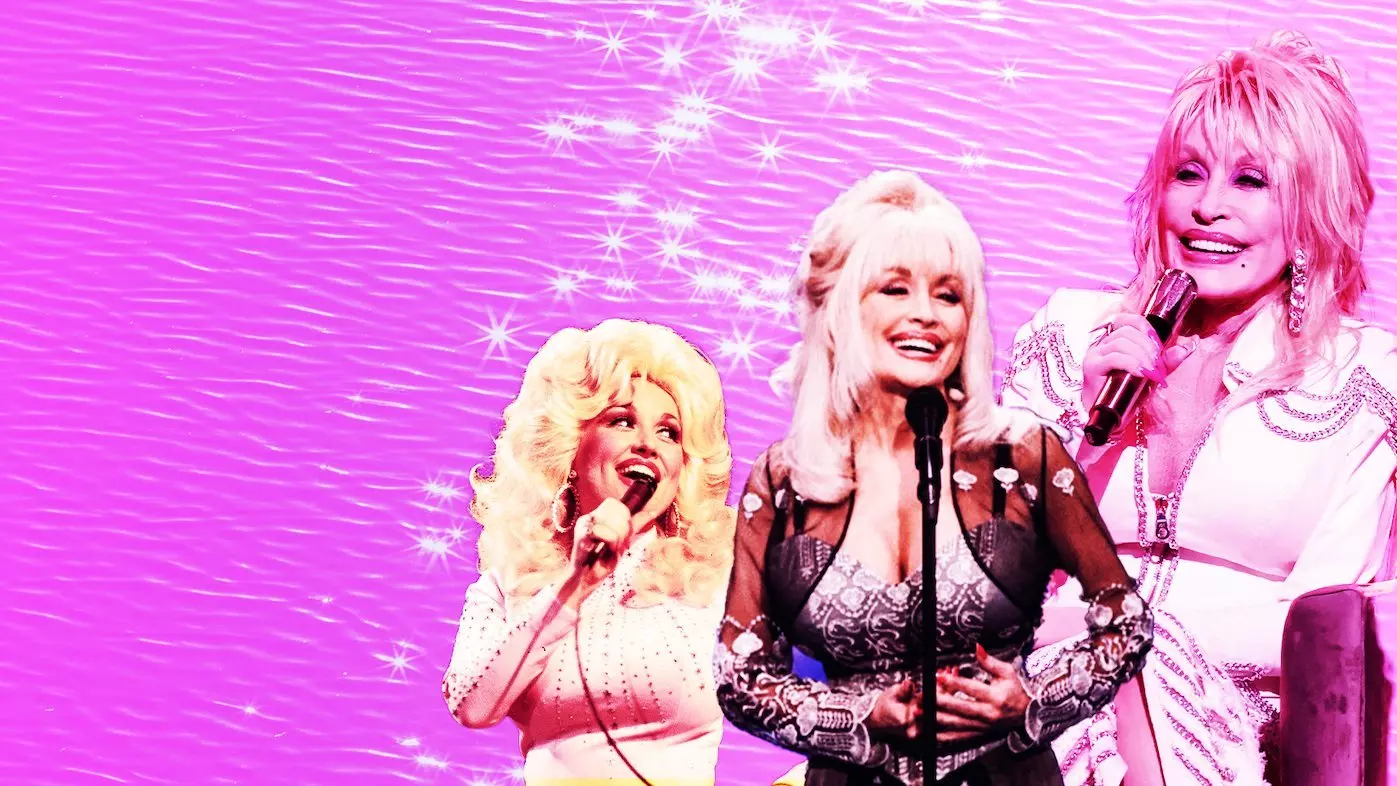
Songbook: How Dolly Parton Became The Queen of Country, From Her Songwriting Prowess To Her Effervescent Charm
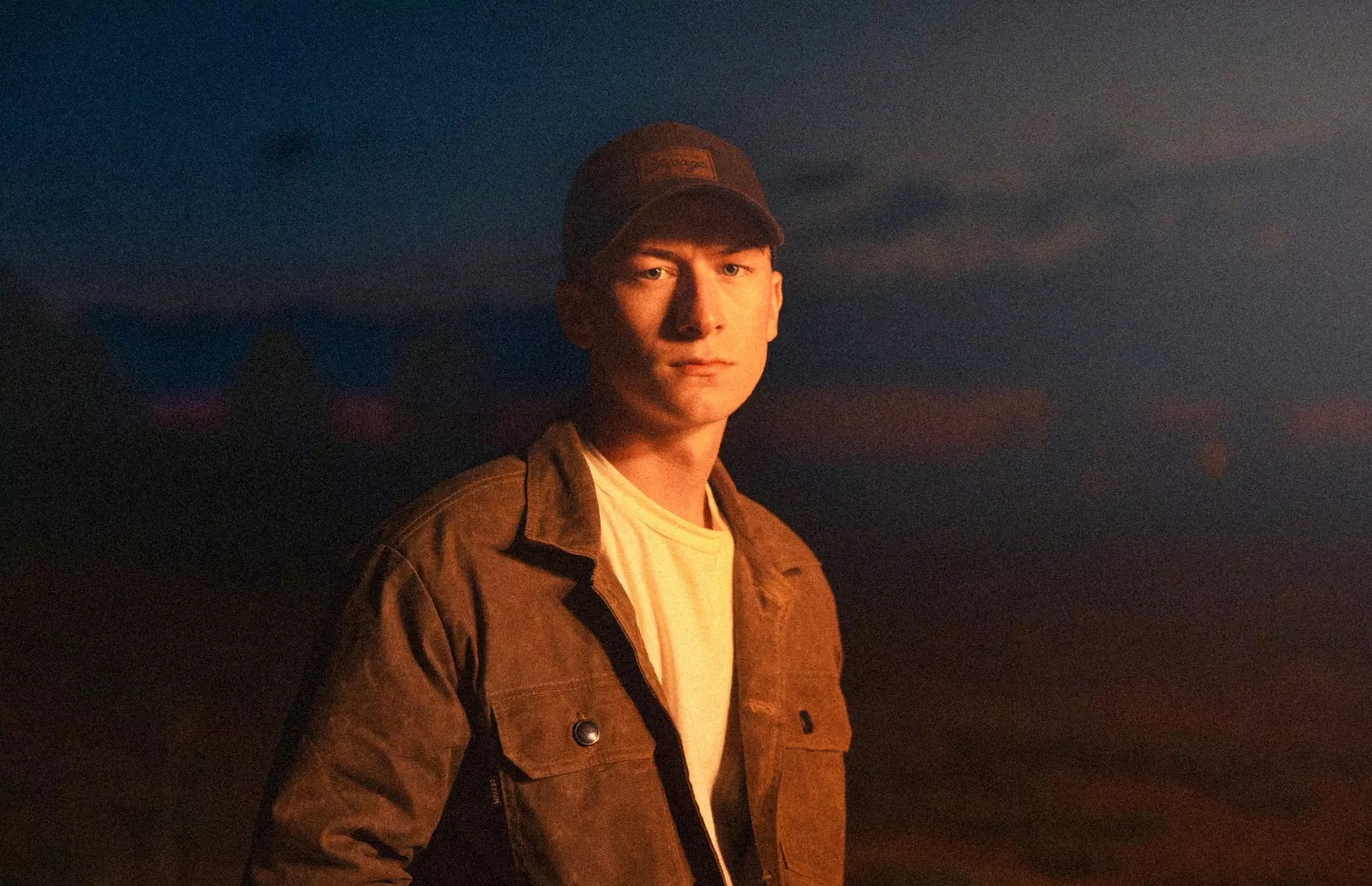
With 'Restless Mind,' Sam Barber Shows He's Wise Beyond His Years
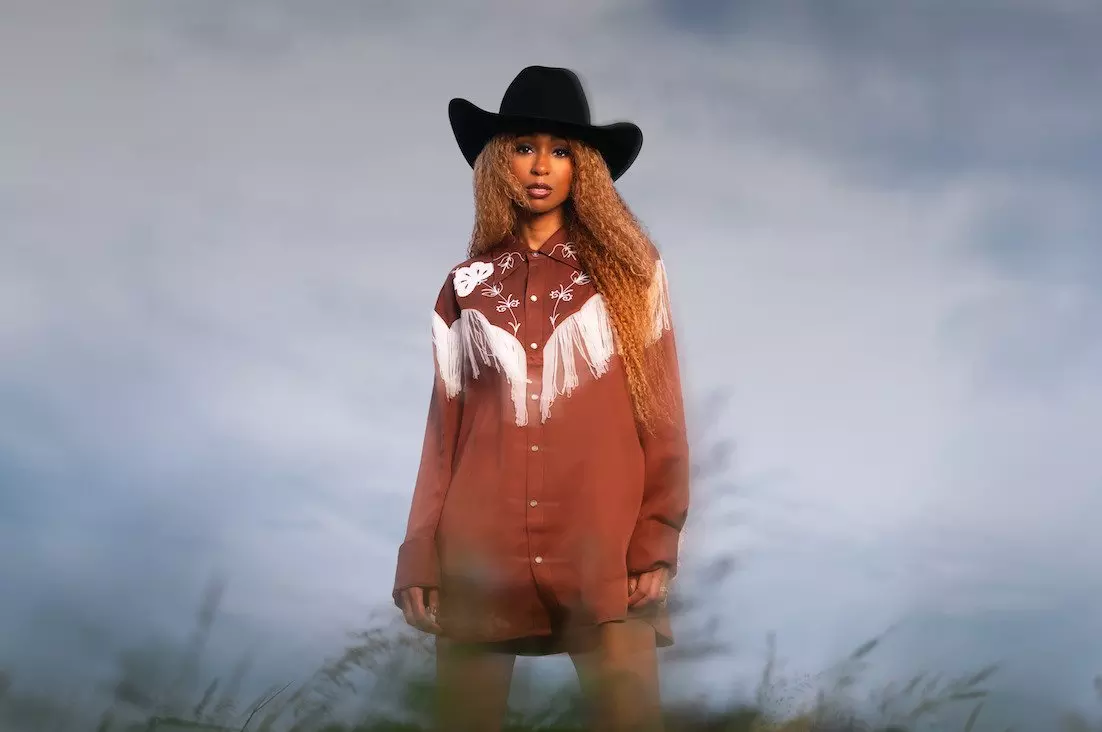
How Tiera Kennedy's 'Rooted' Helped Her Turn Rejection Into Empowerment
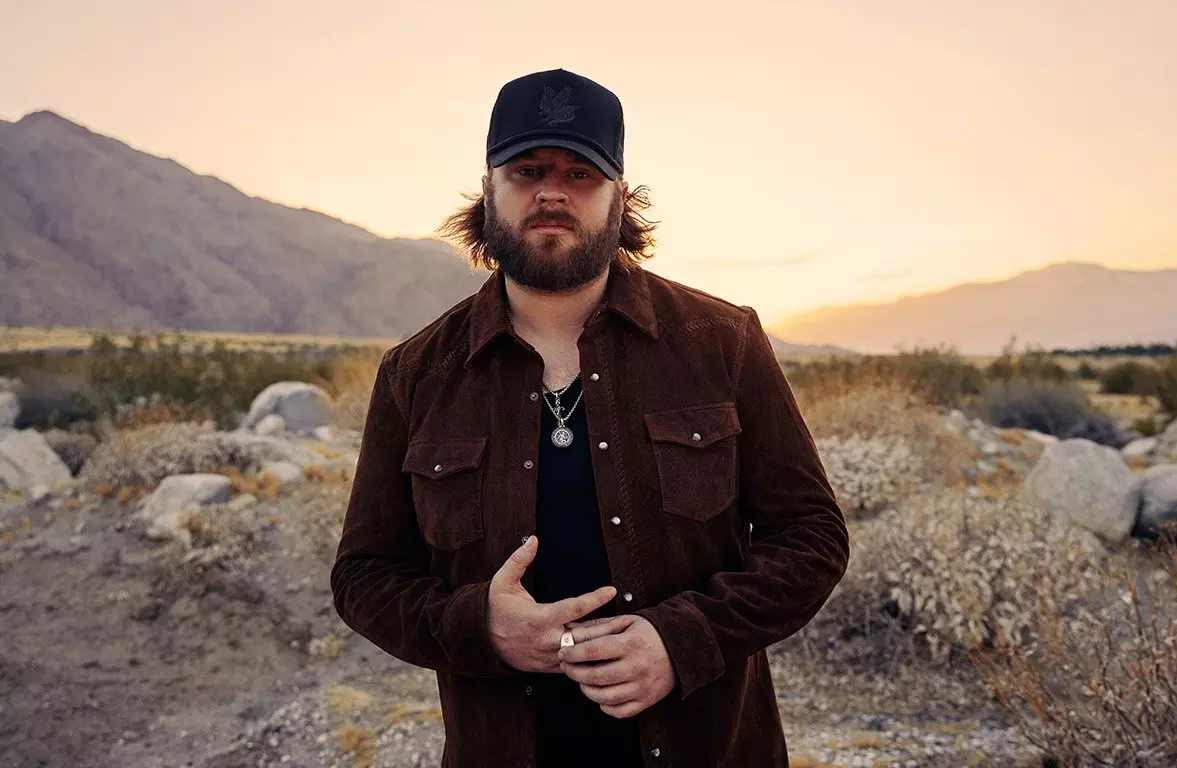
Nate Smith On New Album 'California Gold,' The Country-Rock Movement, & What "Making It" Means To Him
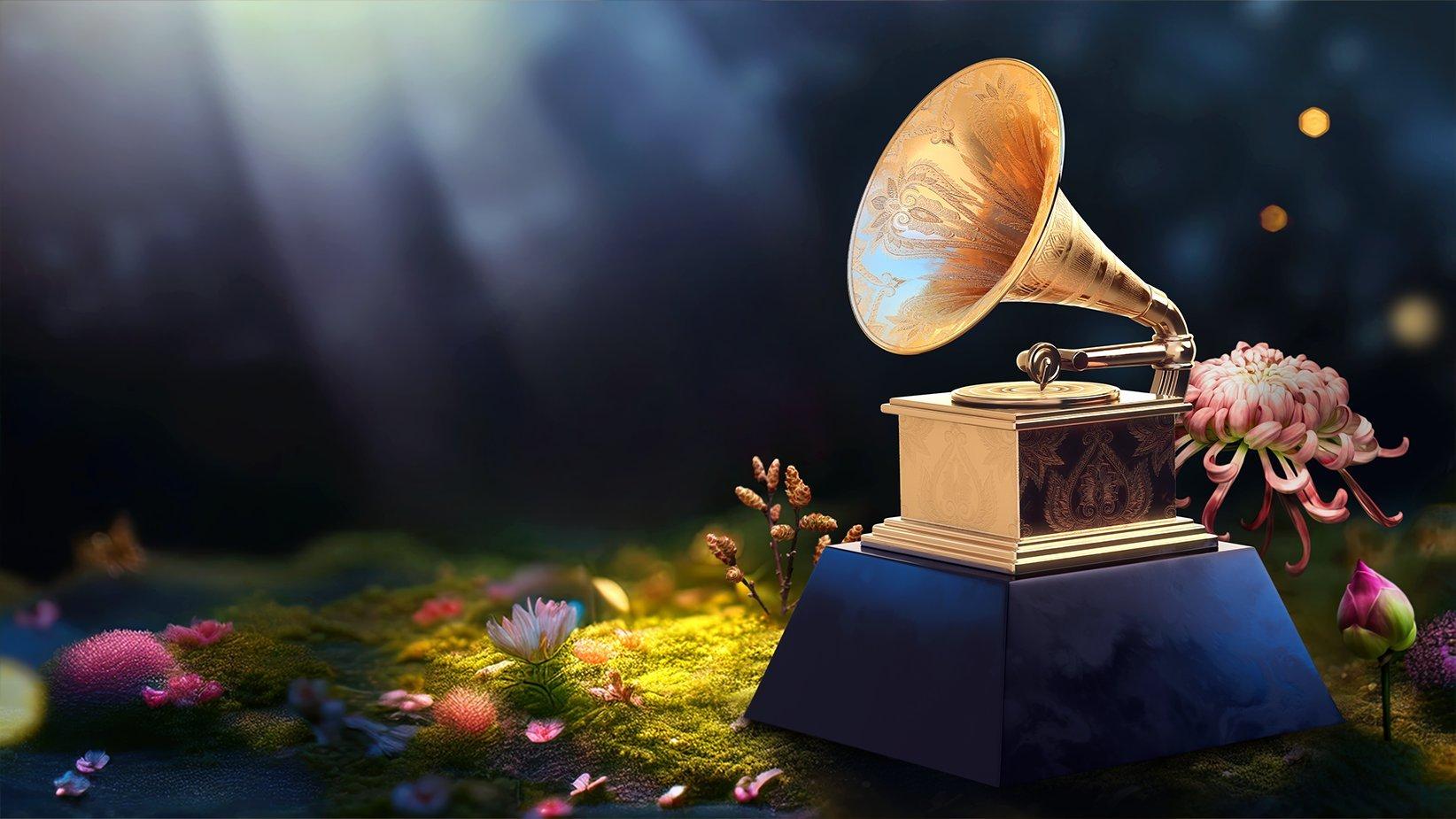
Graphic courtesy of the Recording Academy
list
2025 GRAMMY Nominations: See Shaboozey, Anitta, Teddy Swims & More Artists' Reactions
The 2025 GRAMMY nominations have been announced! Here’s how nominees from RAYE to Troye Sivan reacted on social media.
This morning, 2025 GRAMMY nominations were announced, sparking a wave of excitement for music fans everywhere!
Right after the big announcement, nominated artists lit up social media with posts of joy and gratitude. The timeline quickly filled with celebration, from first-time Best New Artist nominees Shaboozey and Teddy Swims to shoutouts from hit-makers Alissia, Green Day, and St. Vincent.
Dive into the social media celebration posts, and catch up on the full list of nominations on the road to the 2025 GRAMMYs on Sunday, Feb. 2, 2025 at Crypto.com Arena in Los Angeles, broadcasting live on the CBS Television Network and streaming live and on demand on Paramount+.
Best New Artist nominees Shaboozey, Doechii, Sabrina Carpenter, Teddy Swims, and RAYE all shared their heartfelt sentiment after being nominated:
Best Global Music nominee Matt B, nominated with featured performers Royal Philharmonic Orchestra for the album ALKEBULAN II, jumped for joy at hearing news of the nomination.
Brazilian artist Anitta, nominated for Best Latin Pop Album for Funk Generation, felt inspired to get up and groove upon learning of her second career GRAMMY nomination.
Hawaiian artist Kalani Pe'a, nominated for Best Regional Roots Music Album for Kuini was moved to unbridled tears from deep gratitude:
Several more artists took to social to share more reactions to their nominations, including Scott Hoying, Muni Long, Troye Sivan, Cimafunk, Producer Of The Year, Non-Classical nominee Alissia and more:
More 2025 GRAMMYs News
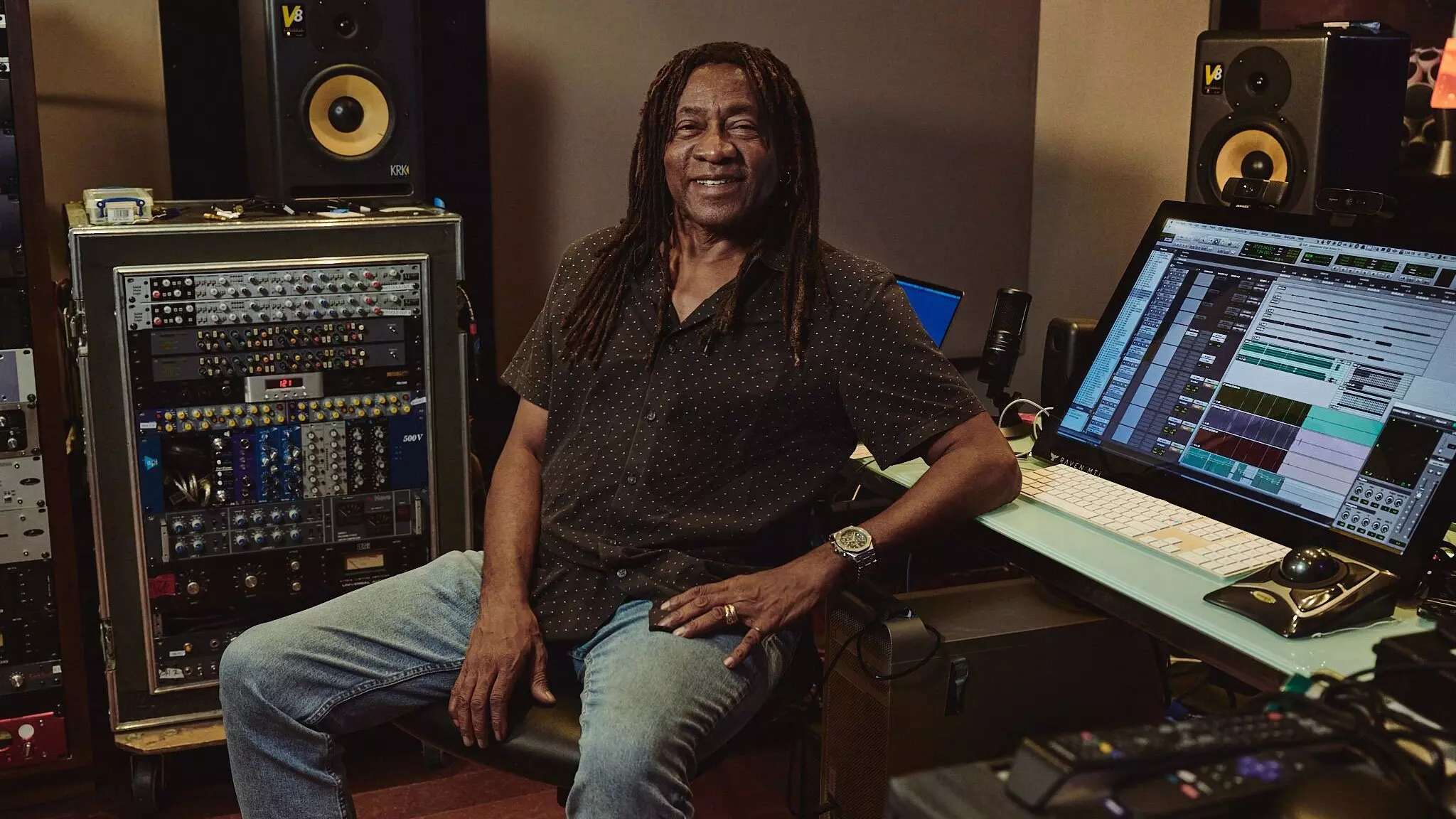
The Recording Academy Producers & Engineers Wing To Honor Jimmy Douglass During 2025 GRAMMY Week Celebration

2025 GRAMMY Nominations: See Shaboozey, Anitta, Teddy Swims & More Artists' Reactions
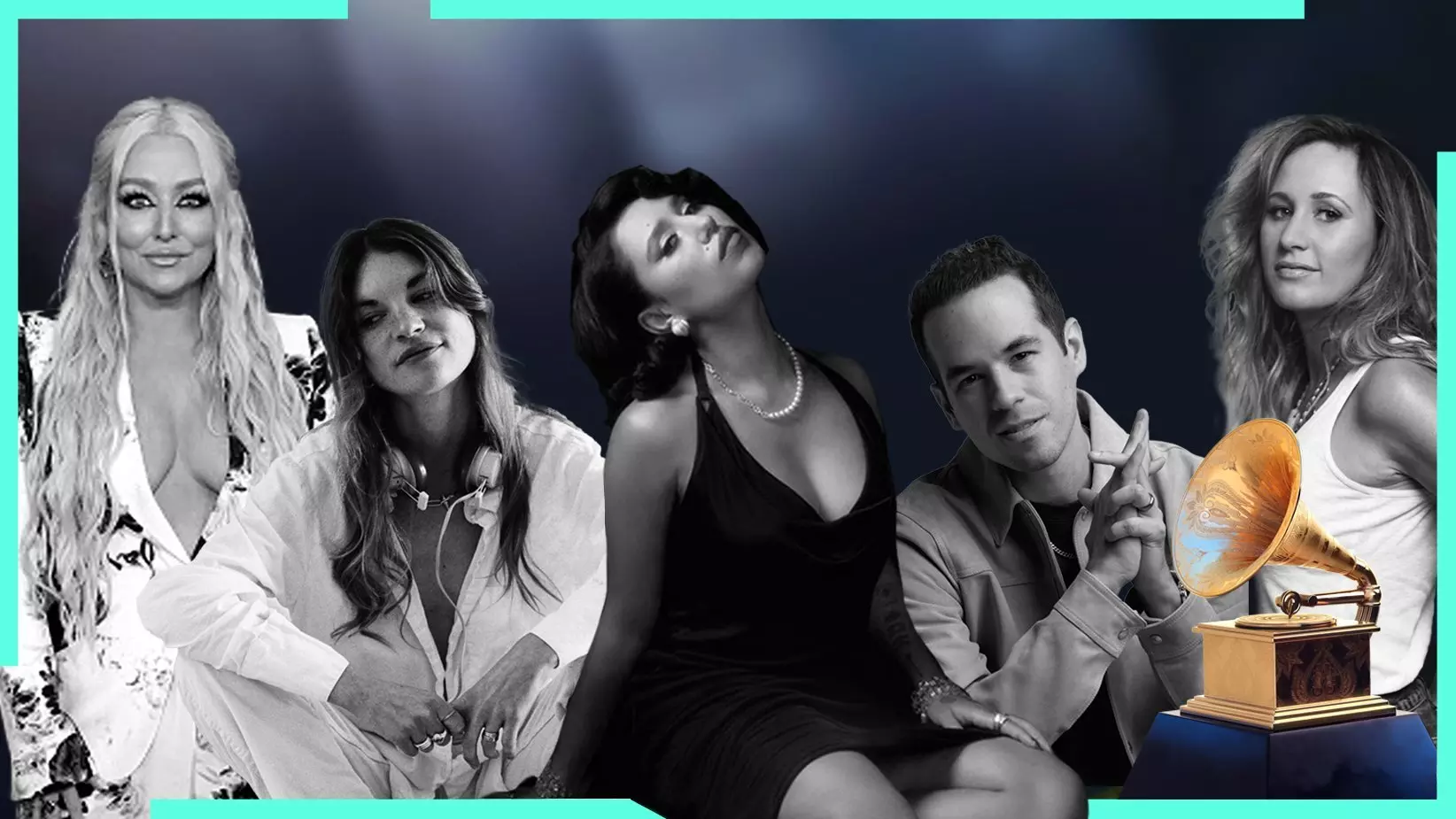
2025 GRAMMYs Nominations: Songwriter Of The Year Nominees
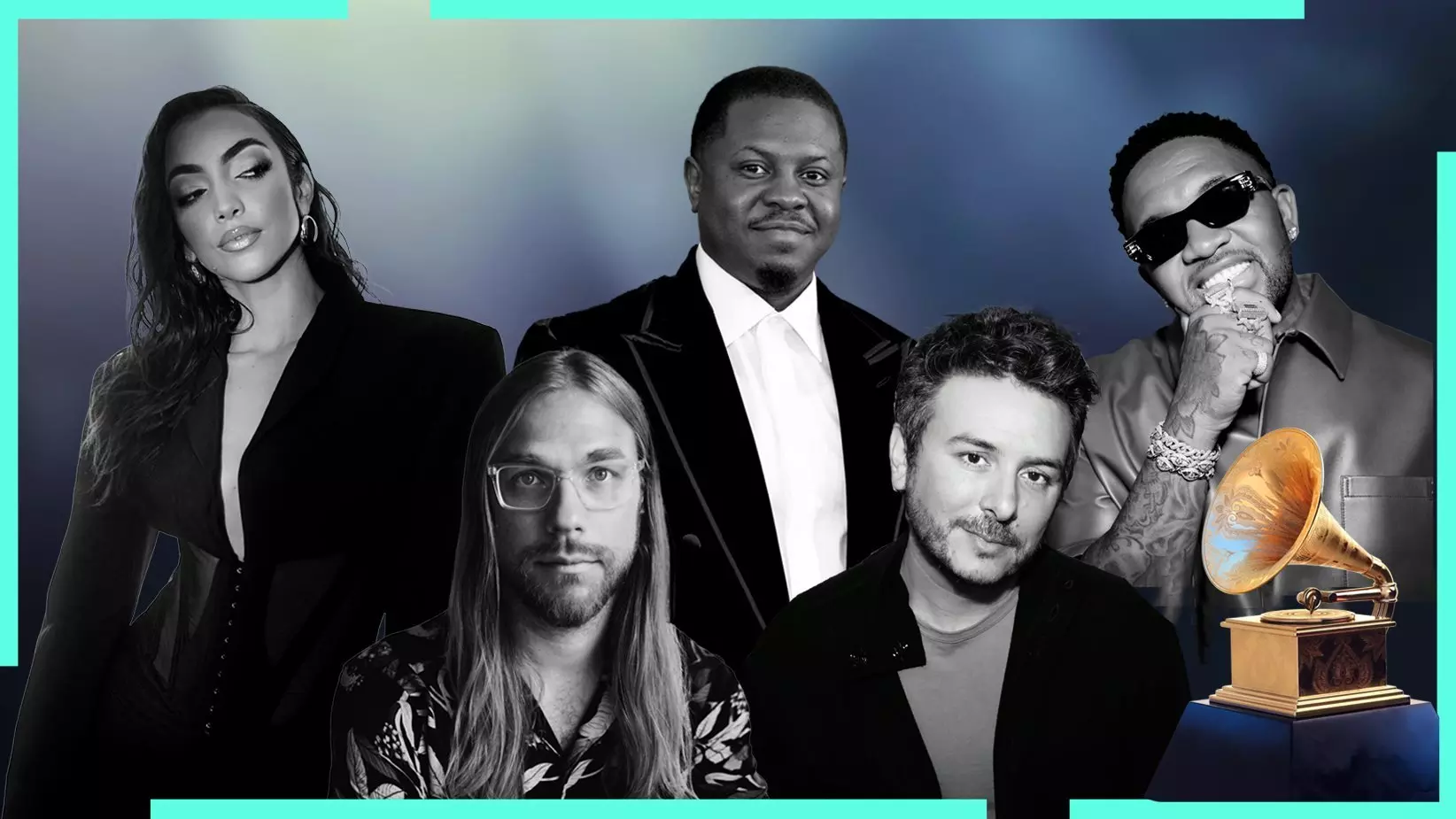
2025 GRAMMYs Nominations: Producer Of The Year Nominees

Watch The 2025 GRAMMY Nominations Wrap-Up Show

list
Beyoncé & Taylor Swift Break More GRAMMY Records, Legacy Acts Celebrate Nods & Lots Of Firsts From The 2025 GRAMMY Nominations
From the Beatles' first nomination in 28 years to big nods for Chappell Roan and Sabrina Carpenter, read on for history-making nominations, record-breaking feats, and the most-nominated acts at the 67th GRAMMY Awards.
Believe it or not, it's already that time of year again: the 2025 GRAMMY nominations have been revealed.
After a year that saw a pop renaissance and continued dominance by women across genres, the 2025 GRAMMY nominees followed suit. Beyoncé is this year's most-nominated artist, adding 11 more to her GRAMMY resumé (more on that later). Pop's newest reigning queens, Sabrina Carpenter and Chappell Roan, solidified their thrones; they each celebrate six nominations, and are the only two artists nominated for Record Of The Year, Album Of The Year, Song Of The Year, and Best New Artist.
In fact, six of the eight leading nominees are women. Female artists dominate both the Record Of The Year and Album Of The Year Categories, as well as over a dozen other Categories Best Pop Vocal Album, Best R&B Performance and Best Latin Pop Album.
But that's just one exciting aspect of this year's nominations. As you dive into the full 2025 GRAMMYs nominee list, take a look at some of the most notable feats and firsts from the 2025 GRAMMY nominations — and be sure to tune into Music's Biggest Night on Sunday, Feb. 2, 2025!
Beyoncé Adds To Her GRAMMY Legacy
With 11 nominations, Beyoncé isn't just the most-nominated artist at the 2025 GRAMMYs — she's now the most-nominated artist in GRAMMY history. The 11 new nods bring her total to a whopping 99 nominations!
Queen Bey is already the artist with the most GRAMMY wins of all time with 32, a record she achieved upon her album RENAISSANCE winning Best Dance/Electronic Music Album at the 2023 GRAMMYs.
Artists Are Nominated In Fields/Categories For The First Time
Along with a new GRAMMY record, Beyoncé also adds a new GRAMMY Field to her repertoire. She received her first nominations in the Country & American Roots Music Field, and five at that: Best Country Solo Performance ("16 CARRIAGES"), Best Country Duo/Group Performance ("II MOST WANTED" Featuring Miley Cyrus), Best Country Song ("TEXAS HOLD 'EM"), Best Country Album (COWBOY CARTER), and Best Americana Performance ("YA YA").
Post Malone also tallied the first Country & American Roots Music Field nominations of his career, earning nods for Best Country Duo/Group Performance and Best Country Song for his Morgan Wallen duet, "I Had Some Help," and Best Country Album for F-1 Trillion.
One of Malone's many F-1 Trillion collaborators, Luke Combs, notched his first nomination in the Best Song Written For Visual Media Category for his chart-topping Twisters anthem "Ain't No Love In Oklahoma."
Meanwhile, R&B titans Alicia Keys and John Legend both celebrate nominations in new Categories as well. Keys is nominated in the Best Musical Theater Album Category for the first time (Hell's Kitchen), and Legend received his first nods for Best Children's Music Album (My Favorite Dream) and Best Arrangement, Instrumental or A Cappella ("Bridge Over Troubled Water" by Jacob Collier featuring Legend & Tori Kelly).
Charli xcx Continues Her Brat Summer
Pop's longtime cool girl Charli xcx also adds several new Categories to her GRAMMY nomination tally, but her reason to celebrate is a little bigger than that: they're her first nominations as a solo artist.
Charli xcx's previous two GRAMMY nominations came in 2015, and they were for her Iggy Azalea collaboration, "Fancy." Perhaps to fans' surprise, her own work had never received a nod — but brat changed that immensely.
One of the most-nominated artists with seven, Charli xcx earned her first nominations in the Album Of The Year (brat), Best Pop Solo Performance ("Apple"), Best Pop Dance Recording ("Von Dutch"), Best Dance/Electronic Album (brat), and Best Music Video ("360") Categories. She's also nominated in the same two Categories in which "Fancy" were 10 years ago: Record Of The Year ("360") and Best Pop Duo/Group Performance ("Guess" Featuring Billie Eilish).
Album Of The Year Marks Notable Firsts
Three of Charli xcx's fellow Album Of The Year nominees reach milestones with their respective nominations. Taylor Swift received her seventh Album Of The Year nomination thanks to THE TORTURED POETS DEPARTMENT, becoming the first woman artist to receive seven nominations in the Category.
Billie Eilish notches her third Album Of The Year nomination in a row with HIT ME HARD AND SOFT, making her the first artist to have their first three albums nominated in the Category.
Jack Antonoff also achieved a back-to-back AOTY feat, as it's the second year in a row that he has been nominated for his work with two separate artists in the Category. His latest Album Of The Year nods are for Swift's THE TORTURED POETS DEPARTMENT and Sabrina Carpenter's Short n' Sweet. (Fittingly, Swift was one of the two artists last year too, as Antonoff was nominated for AOTY for his work on Midnights as well as Lana Del Rey's Did You Know That There's a Tunnel Under Ocean Blvd.)
Veteran Acts Earn Nods For The First Time In A Long Time
Several artists and creators celebrate their first GRAMMY nominations this year, including big-name stars like Sabrina Carpenter, Doechii, Carin Léon, Chappell Roan, Shaboozey, and Morgan Wallen. What's more, 32 of those first-time nominees have two or more nominations.
But while the Recording Academy is always excited to honor new nominees — check back to GRAMMY.com in January for the annual Meet The First-Time GRAMMY Nominee series — one of the most interesting stories of the 2025 GRAMMYs centers on those who received nominations for the first time in over a decade.
Perhaps the most unexpected names to see on the list are the Beatles. The Fab Four are nominated for the first time in 28 years thanks to "Now And Then," what Paul McCartney has dubbed "the final Beatles record." The song earned nods for Record Of The Year and Best Rock Performance, which brings their career nominations count to 25; prior to the 2025 GRAMMYs, the Beatles have won seven GRAMMYs.
The longest time between nominations this year goes to the Black Crowes, who received their first nod in 34 years for Happiness Bastards, their first album in 14 years. They earned their first Best Rock Album nomination, as they'd only ever been nominated once previously, for Best New Artist in 1991.
Interestingly, the Rock, Metal & Alternative Music Field spawned a few long-awaited nominations for veteran acts. Kim Gordon of Sonic Youth fame scored the first nominations of her career with her second solo album, The Collective, which is up for Best Alternative Music Album, and its lead single, "BYE BYE" is up for Best Alternative Music Performance.
Pearl Jam celebrated their first nominations since 2011 with their 12th studio album, Dark Matter, which received a nod for Best Rock Album as well as Best Rock Song and Best Rock Performance for its title track.
They're in company with their fellow '90s punk rock gods Green Day, who earned nods in all three Categories thanks to their latest album, Saviors. Marking Green Day's first nominations since 2014, Saviors is up for Best Rock Album, while singles "The American Dream Is Killing Me" and "Dilemma" are up for Best Rock Performance and Best Rock Song, respectively.
Elsewhere, Usher earned his first nomination for his own work in 10 years with a Best R&B Album nod for Coming Home, and Eminem earned his first nod for Best Rap Album (a Category he's won six times) in 10 years with The Death of Slim Shady (Coup de Grâce).
Collaborations helped Erykah Badu, Michael McDonald and Monica snag their first nominations in more than a decade, too. Badu's team-up with Rapsody, "3:AM," earned a nod for Best Melodic Rap Performance, the singer's first nomination in the Category and first overall since 2009. McDonald tallied his first nomination since 2004 thanks to his Lalah Hathaway duet, "No Lie," which is nominated for Best Traditional R&B Performance.
Monica received her first nomination since 2011, which also marked a full-circle moment. Her collab with Ariana Grande and Brandy, "The Boy Is Mine," earned a nod for Best Pop Duo/Group Performance — 26 years after her duet with Brandy of the same name won a GRAMMY for Best R&B Performance By A Duo Or Group With Vocal.
Will any legends go home with more golden gramophones? Will Beyoncé further her victory lap? Will there be several first-time winners? Tune into CBS on Feb. 5, 2025 to find out!
Explore The World Of Rock
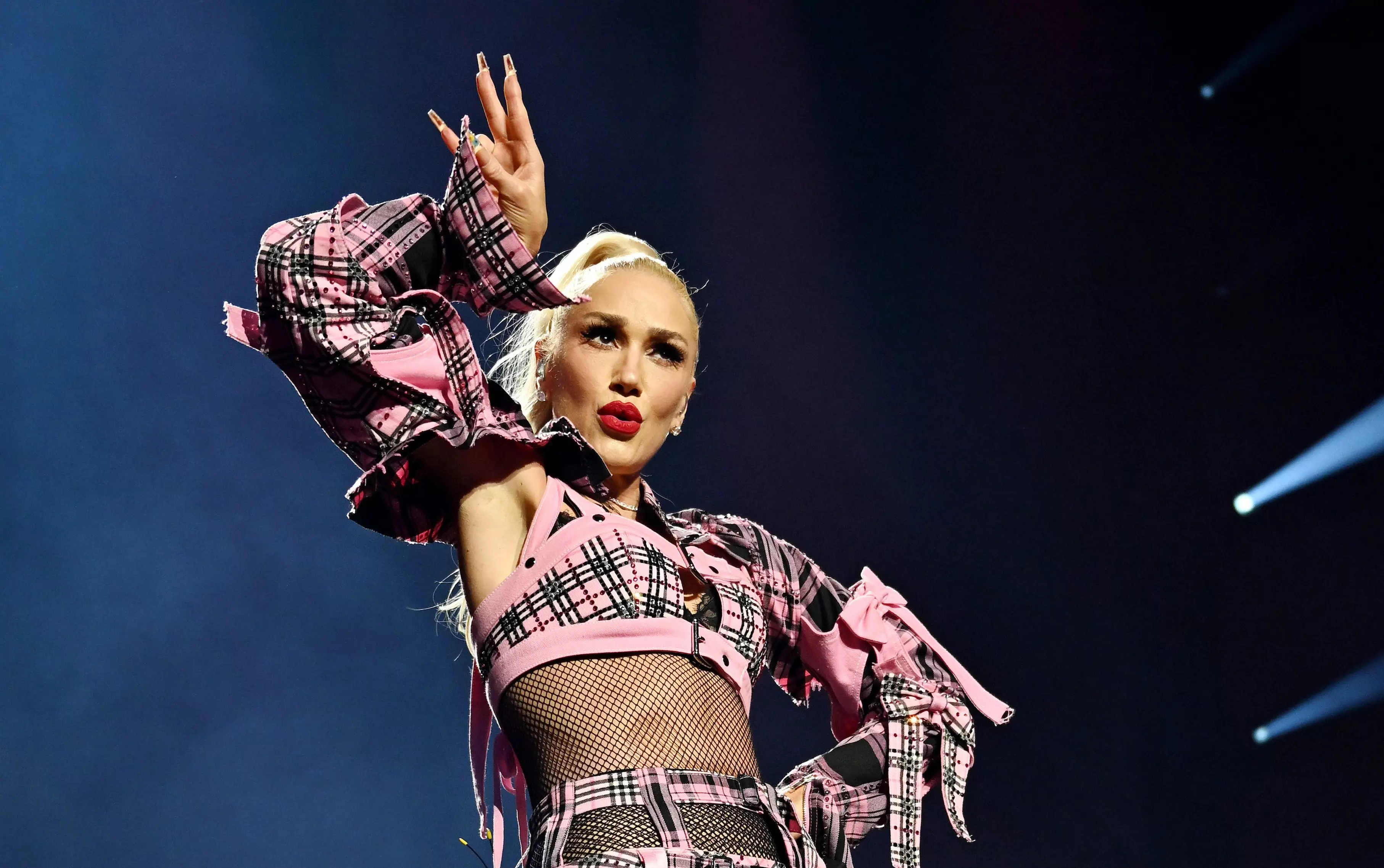
How Gwen Stefani's New Album 'Bouquet' Celebrates A Career Built On Love In All Its Forms
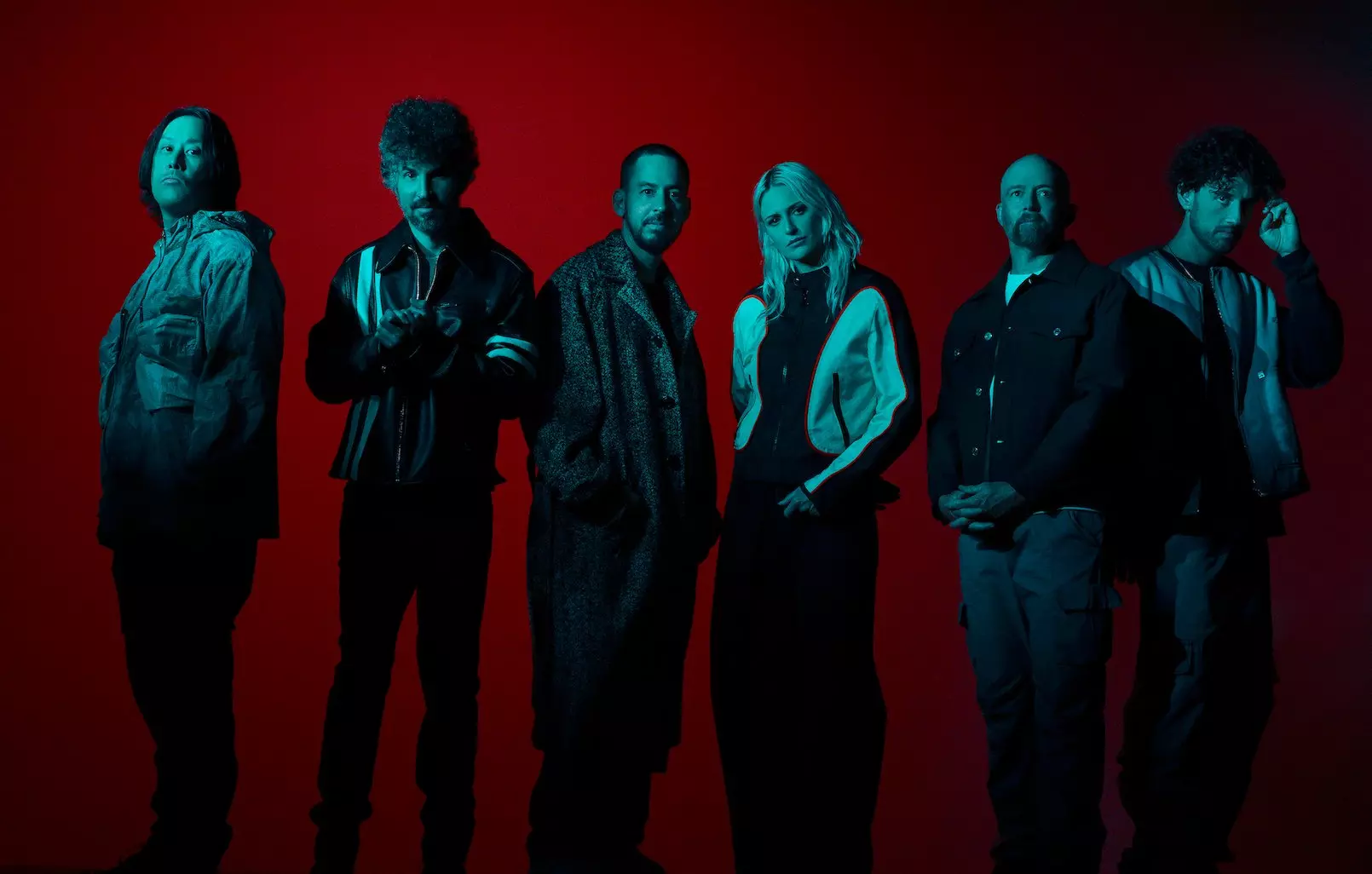
How Linkin Park's New Album Honors Chester Bennington
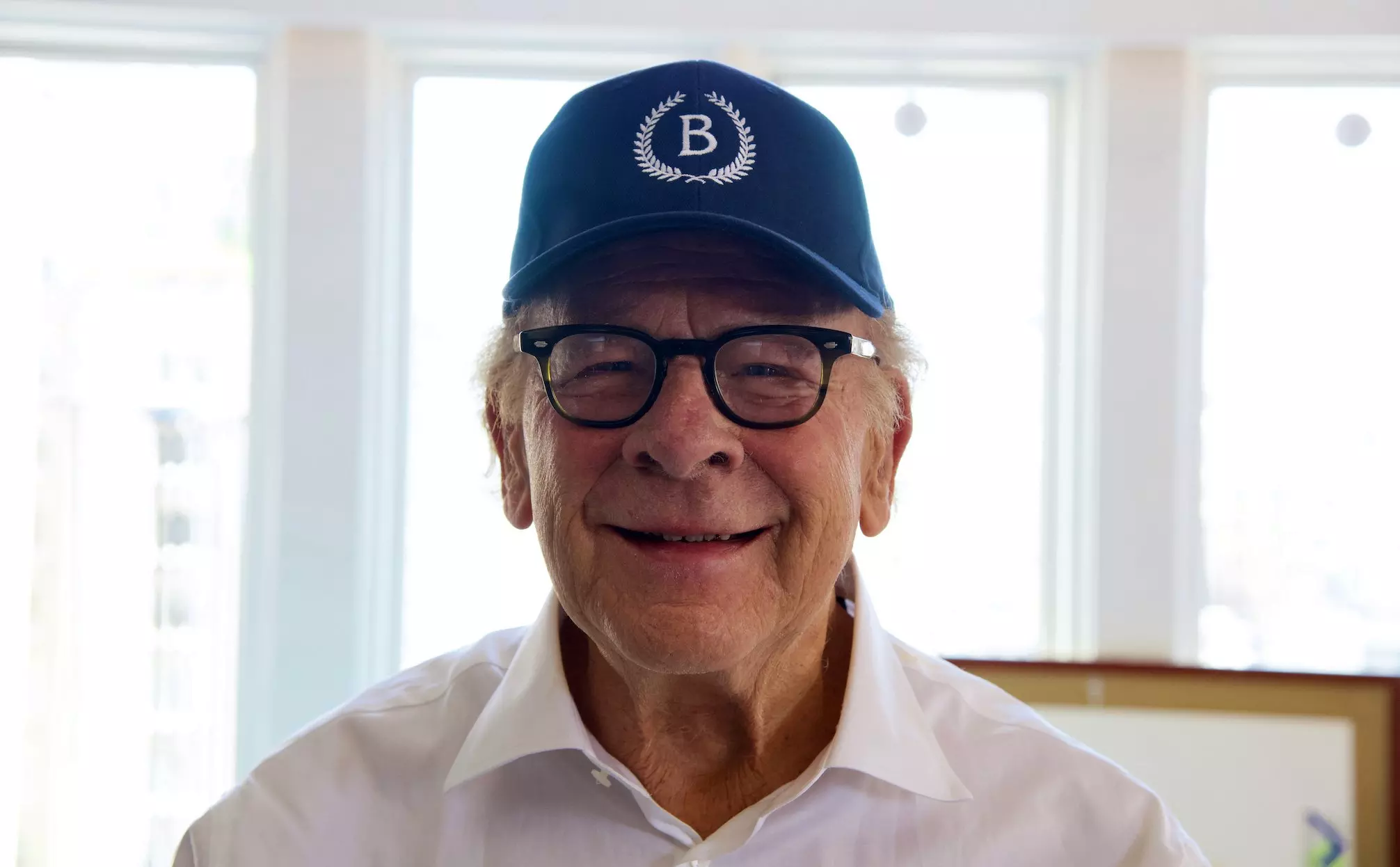
Living Legends: Art Garfunkel On New Album 'Father And Son,' Following His Muse & "The Greatest Thrill Of My Performing Life"

Radiohead Performs "15 Step" At The 2009 GRAMMYs
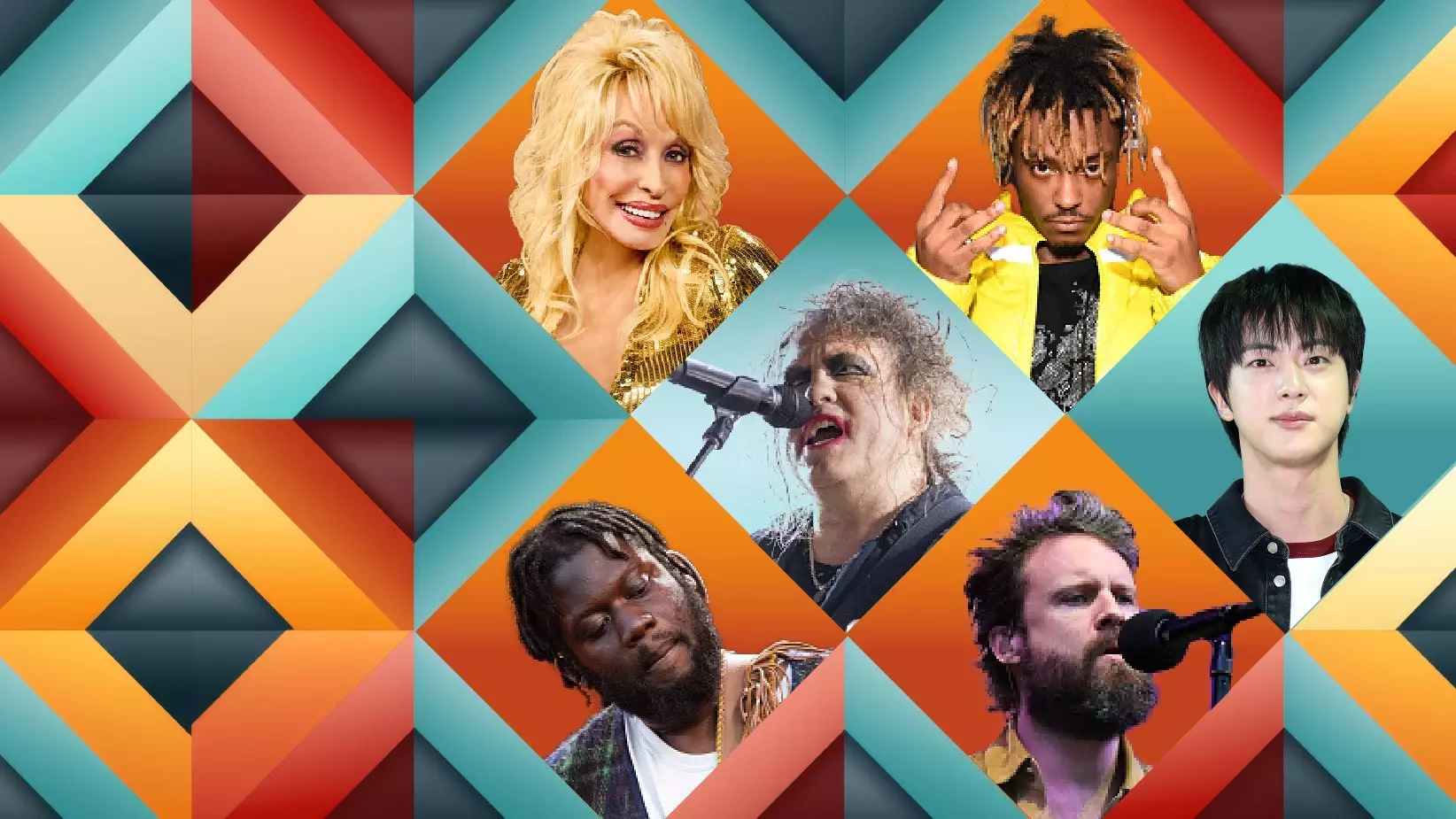
14 Must-Hear Albums In November: The Cure, Dolly Parton, Jin Of BTS, Ab-Soul, & More
